


























































































(AND ASSOCIATED PRODUCTS)
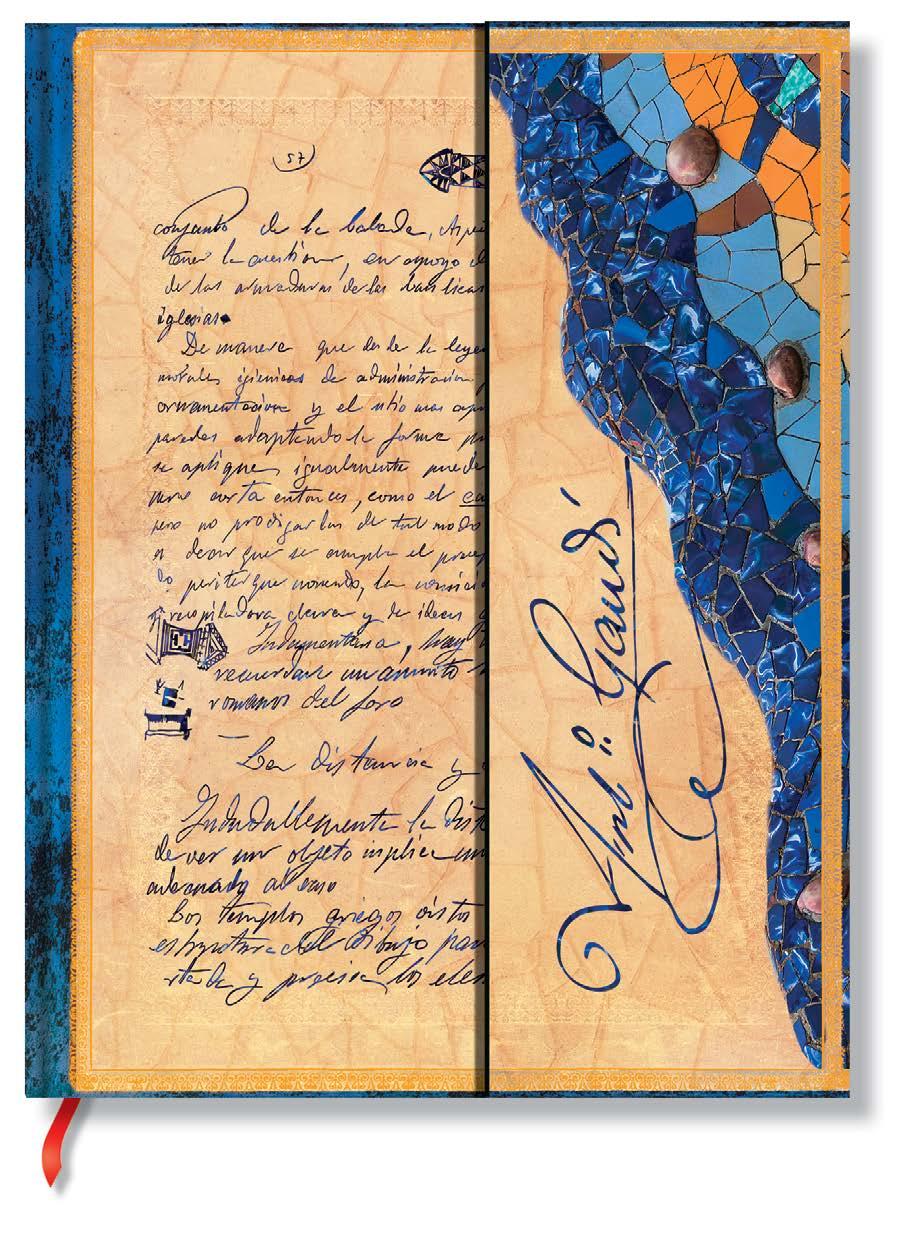
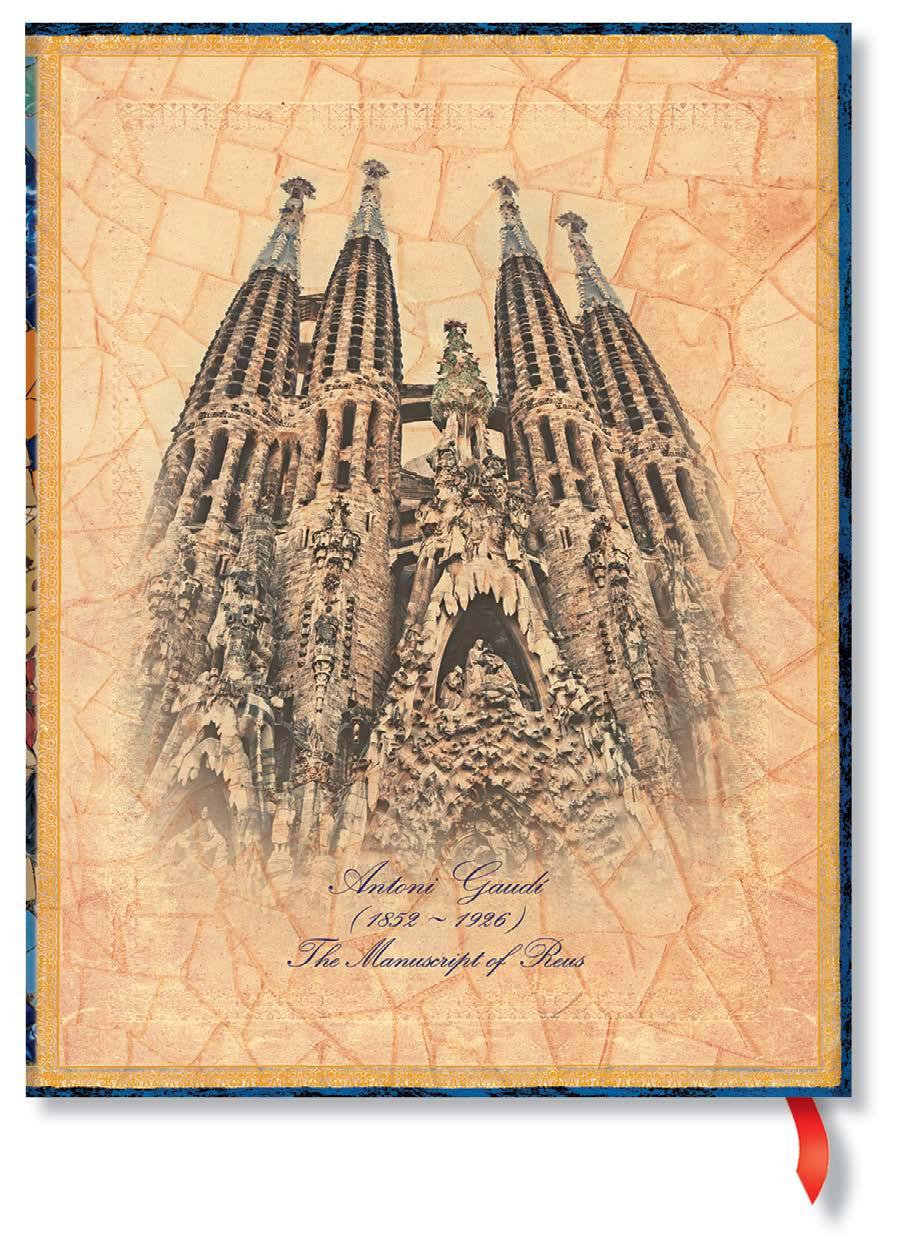
Antoni Gaudi Collection
Embellished Manuscripts Collection
Available as:
Ultra and midi hardcover journal, bookmark and document folder
Original Artwork: Manuscript of Reus by Antoni Gaudí
Era: 1873–1878
Region: Spain
Current Location: Institut Municipal Reus Cultura in Reus, Spain (manuscript); Park Güell (mosaics) and Basílica de la Sagrada Familia (back cover illustration) in Barcelona, Spain
Background:
O Antoni Gaudí (1852–1926) was a Spanish architect and designer from Catalonia, known especially for his architectural works found throughout the city of Barcelona.
O This handwritten manuscript comes from a notebook in which Gaudí jotted down his ideas on ornamentation, notably in relation to his early works.
O The manuscript, which has come to be known as El manuscript de Reus (the Manuscript of Reus), is one of the only surviving documents in Gaudí’s hand, the rest having been destroyed during the Spanish Civil War when riots erupted in his Sagrada Familia–based studio.
o Paying tribute to this part of Gaudí’s story, we have included an image of the Basílica de la Sagrada Familia in Barcelona, his as-yet-unfinished architectural masterpiece, on the back cover of this journal.
Fun Facts:
O Mosaic elements from Gaudi’s iconic Dragon Salamandra in Park Güell in Barcelona make up the colourful details incorporated into this cover design.
O Gaudí infused his Catalan background and Catholic faith in everything he created, dedicating his life to creating works where technique, history, aesthetics and religion become united.
Please note: All original images belong to the licensors and are to be shown internally for sales purposes only. Not to be reproduced, copied or otherwise removed from this sales document.
Front Back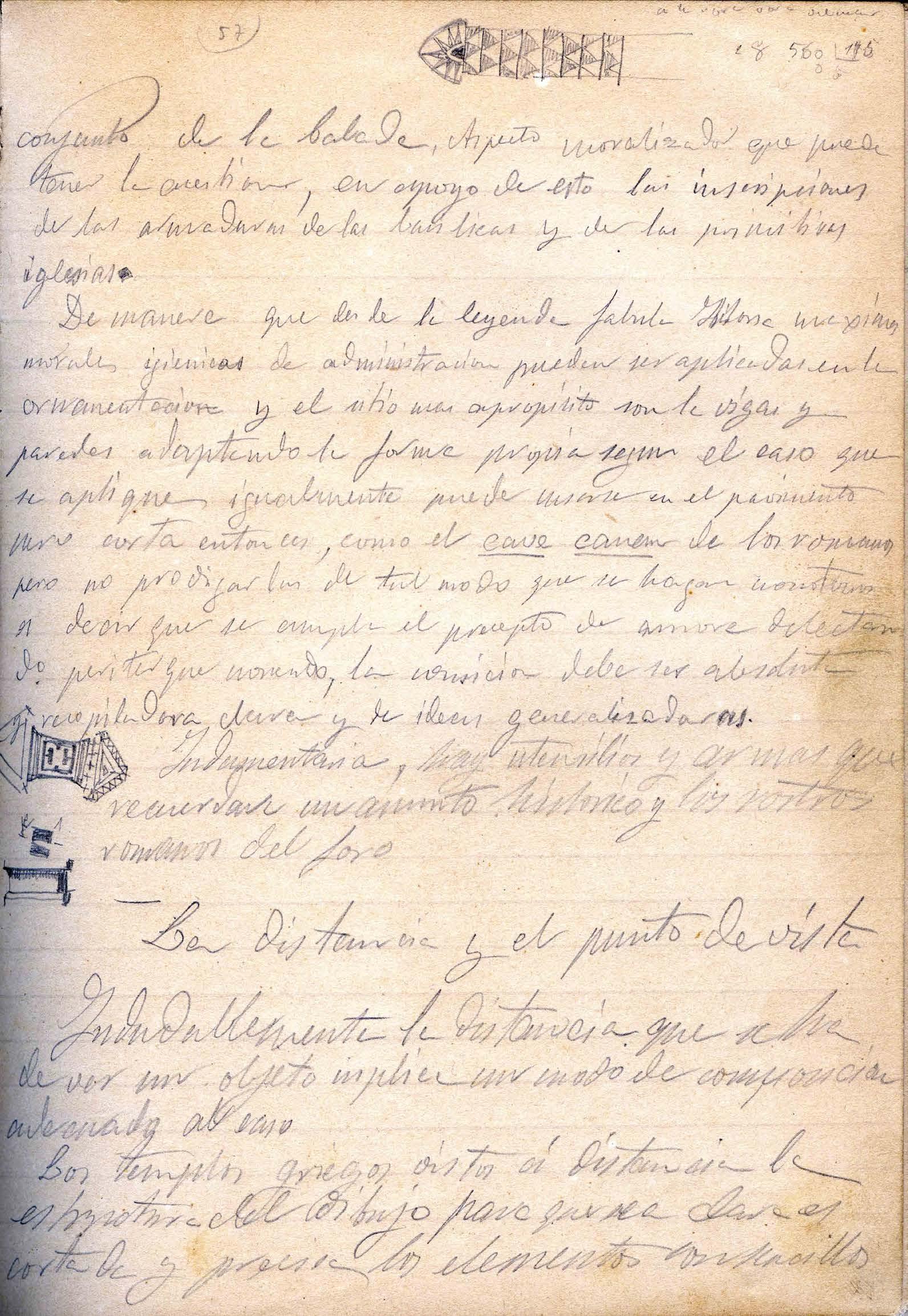

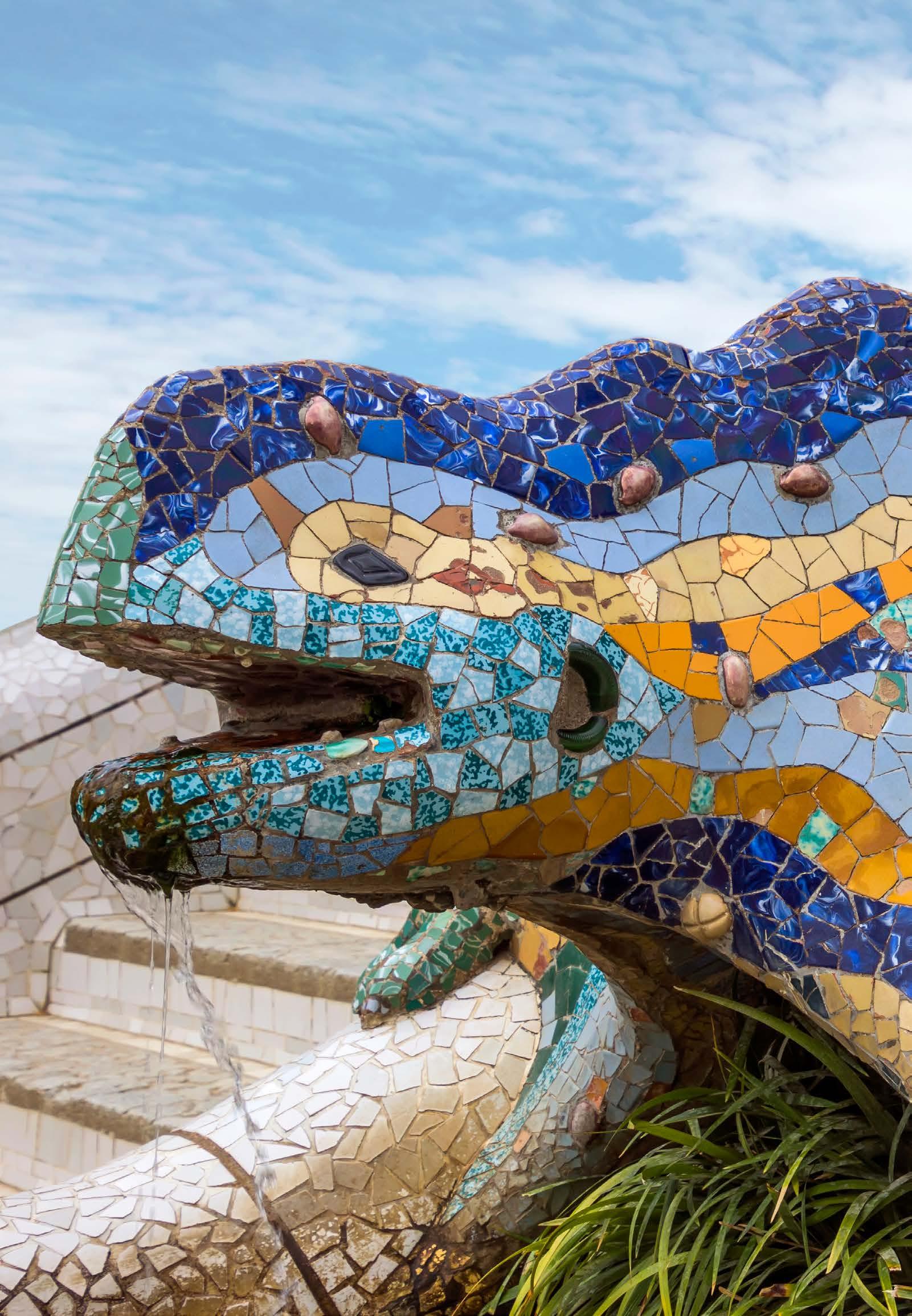
Please note: All original images belong to the licensors and are to be shown internally for sales purposes only. Not to be reproduced, copied or otherwise removed from this sales document.
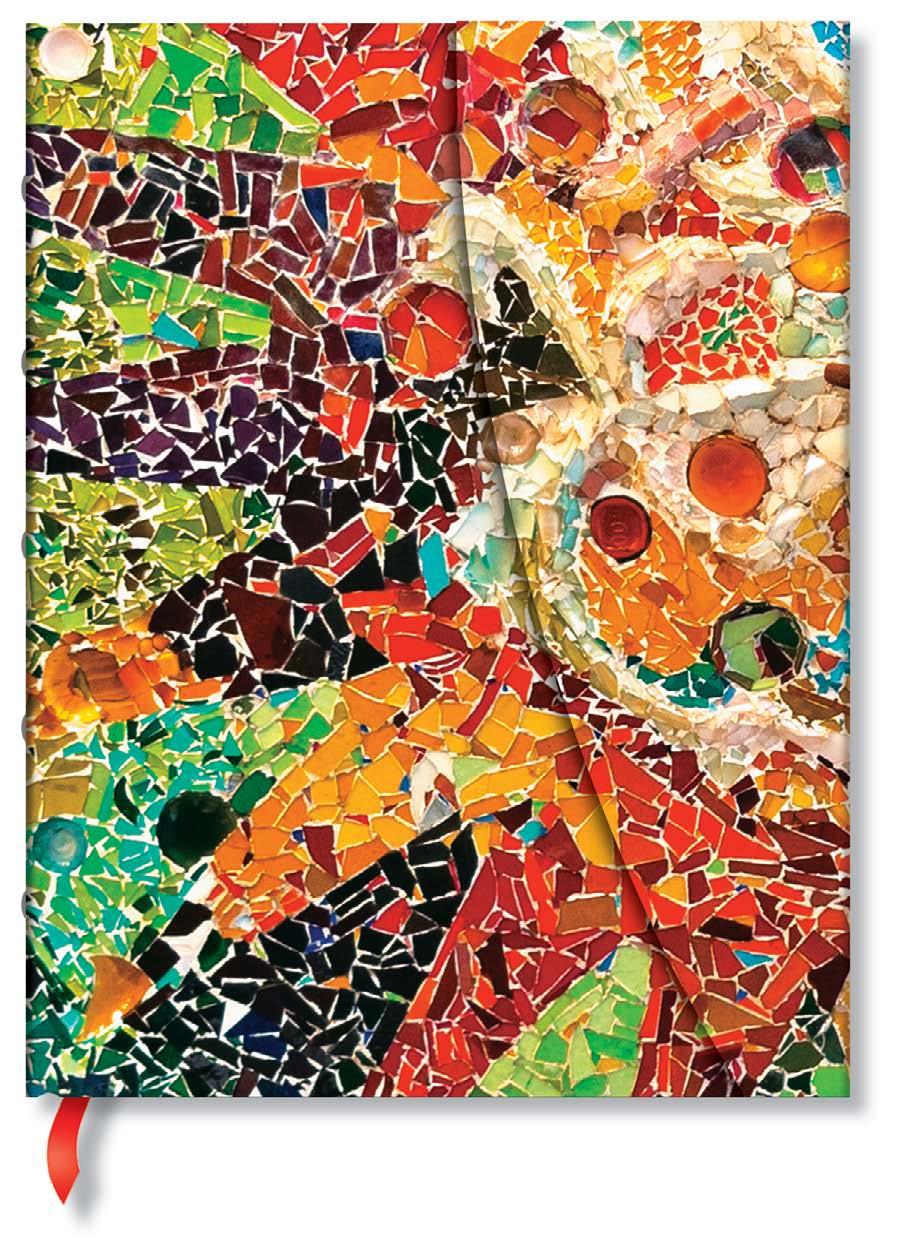
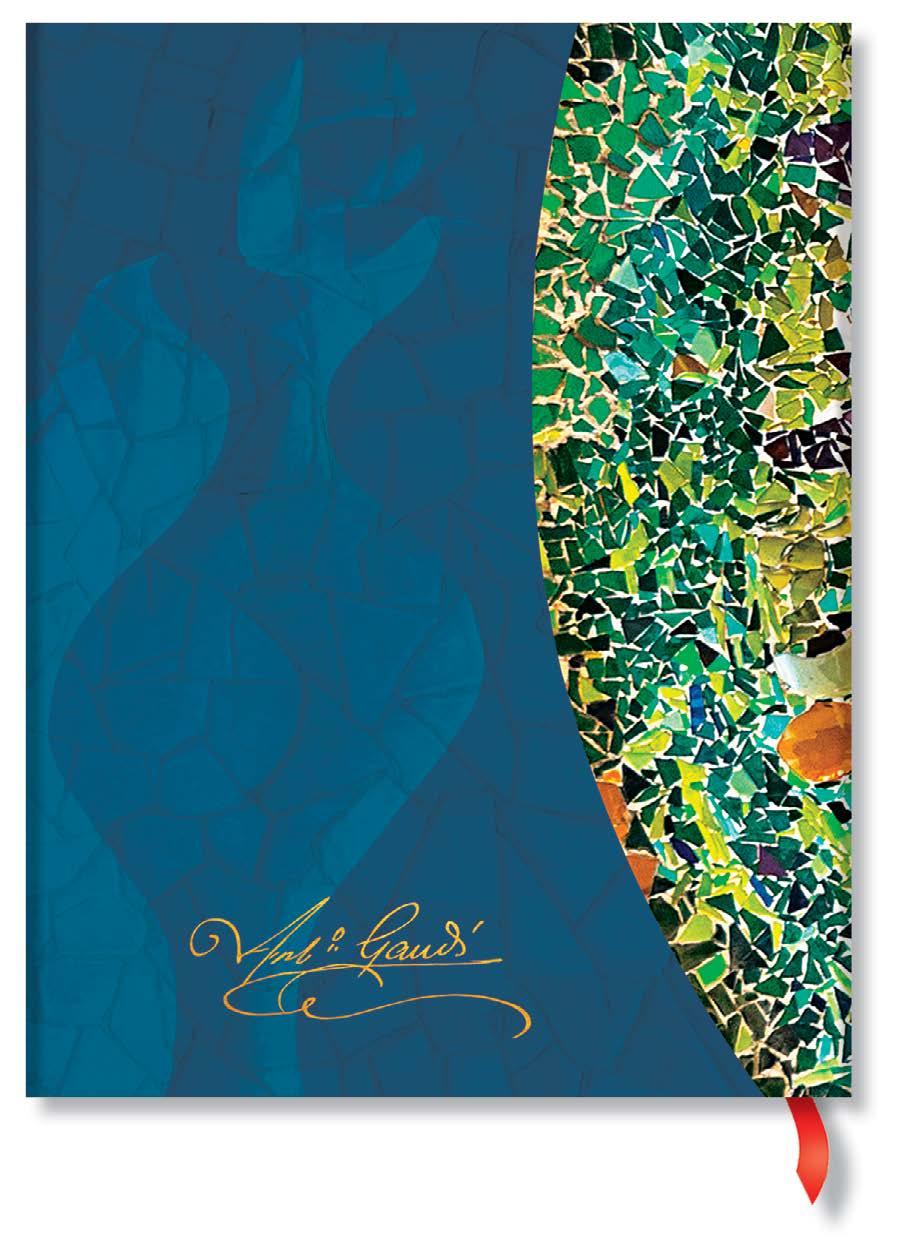
Antoni Gaudi Collection
Gaudi’s Mosaics
Available as:
Original artwork: Detail from ceiling with mosaic sun (Park Güell) and chimney pots (Casa Milà building)
Era: 1900–1912
Region: Spain
Current Location: Park Güell (mosaics) and La Pedrera (back cover) in Barcelona, Spain
Background:
O Antoni Gaudí (1852–1926) was a Spanish architect and designer from Catalonia, known as the leading figure in modernism and the pioneer of Catalan Art Nouveau.
O One of his best-loved contributions to the city of Barcelona is Park Güell, a vibrant garden where his colourful sculptures mix with the breathtaking beauty of the city’s hillside.
O Reproduced here is a section of a mosaic sun on the ceiling of the park’s Hypostyle Room, alongside cascading abstract details from the chimney pots he designed for the Casa Milà building.
Fun Facts:
O Gaudí's work was greatly influenced by his passions in life – architecture, nature and religion – and his distinctive style is characterized by the depiction of organic forms, abstract lines and extraordinary mosaics.
O Casa Milà (La Pedrera), the culmination of Antoni Gaudí’s work, is the building in which he concentrated all his knowledge of form in its purest and most coherent state. It was declared a UNESCO World Heritage Site in 1984 (along with Park Güell).
O 2026 will mark 100 years since Gaudí’s death, and there will be celebrations planned all year long in Barcelona.
Please note: All original images belong to the licensors and are to be shown internally for sales purposes only. Not to be reproduced, copied or otherwise removed from this sales document.
Ultra, midi and mini hardcover journal, canvas bag and pencil case Front Back

Please note: All original images belong to the licensors and are to be shown internally for sales purposes only. Not to be reproduced, copied or otherwise removed from this sales document.
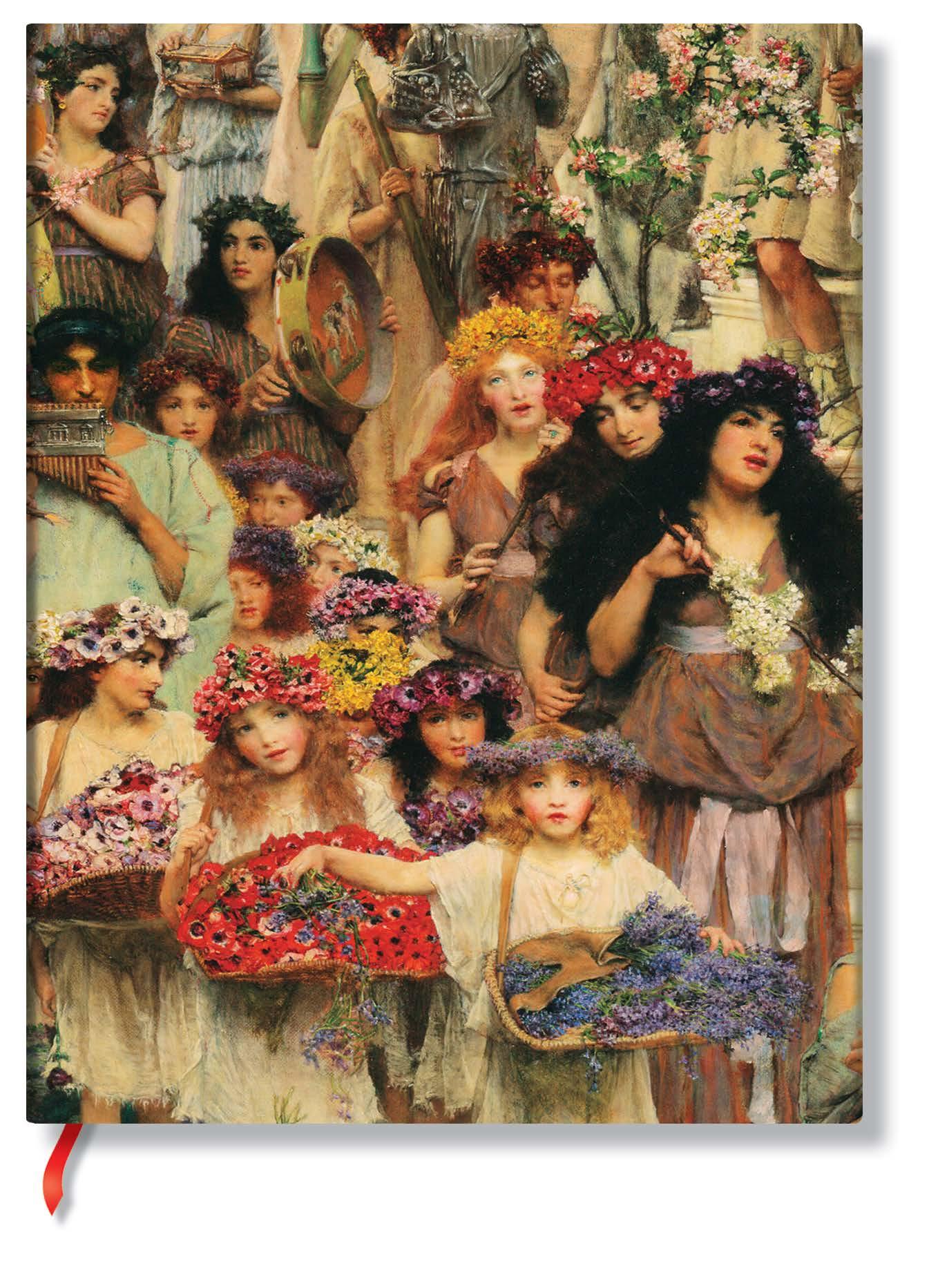
Lawrence Alma-Tadema
Available as:
Ultra, midi and mini hardcover journal, bookmark, canvas bag and pencil case
Original Artwork: Spring painting by Lawrence Alma-Tadema Era: 1894
Region: England
Current Location: J. Paul Getty Museum in Los Angeles, USA
Background:
O Sir Lawrence Alma-Tadema (1836–1912) was a Dutch painter of classical subjects who became famous for his depictions of the luxury and decadence of the Roman Empire.
O In this Spring painting from 1894, he represents the Victorian custom of sending children to collect flowers on the morning of May 1, or May Day, within an ancient Roman setting.
o In doing so, he suggested the festival’s rich history through architectural details, dress, sculpture and musical instruments based on Roman originals.
o In the Roman setting, the festival was known as Floralia, which is also the inspiration behind our name for one of our William Kilburn designs.
O We originally produced Spring as a limited edition midi journal exclusively for Getty, and this season we are thrilled to offer this full Lawrence Alma-Tadema series as part of our J. Paul Getty Museum Collection.
Fun Facts:
O Born Lourens Alma Tadema in the Netherlands, Alma-Tadema eventually settled in the United Kingdom and was knighted in 1899.
O Alma-Tadema’s panoramic depictures of life in the Greek and Roman empires caught the attention of Hollywood filmmakers in the early 20th century, and this painting itself inspired the set design in Cecil B. De Mille’s Cleopatra (1934).
Please note: All original images belong to the licensors and are to be shown internally for sales purposes only. Not to be reproduced, copied or otherwise removed from this sales document.
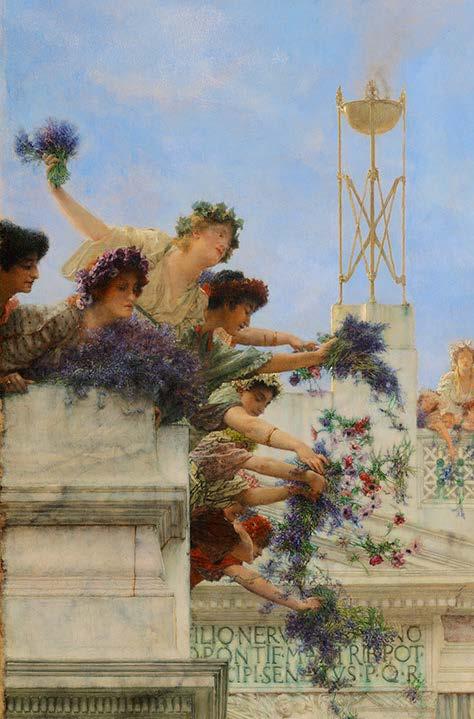
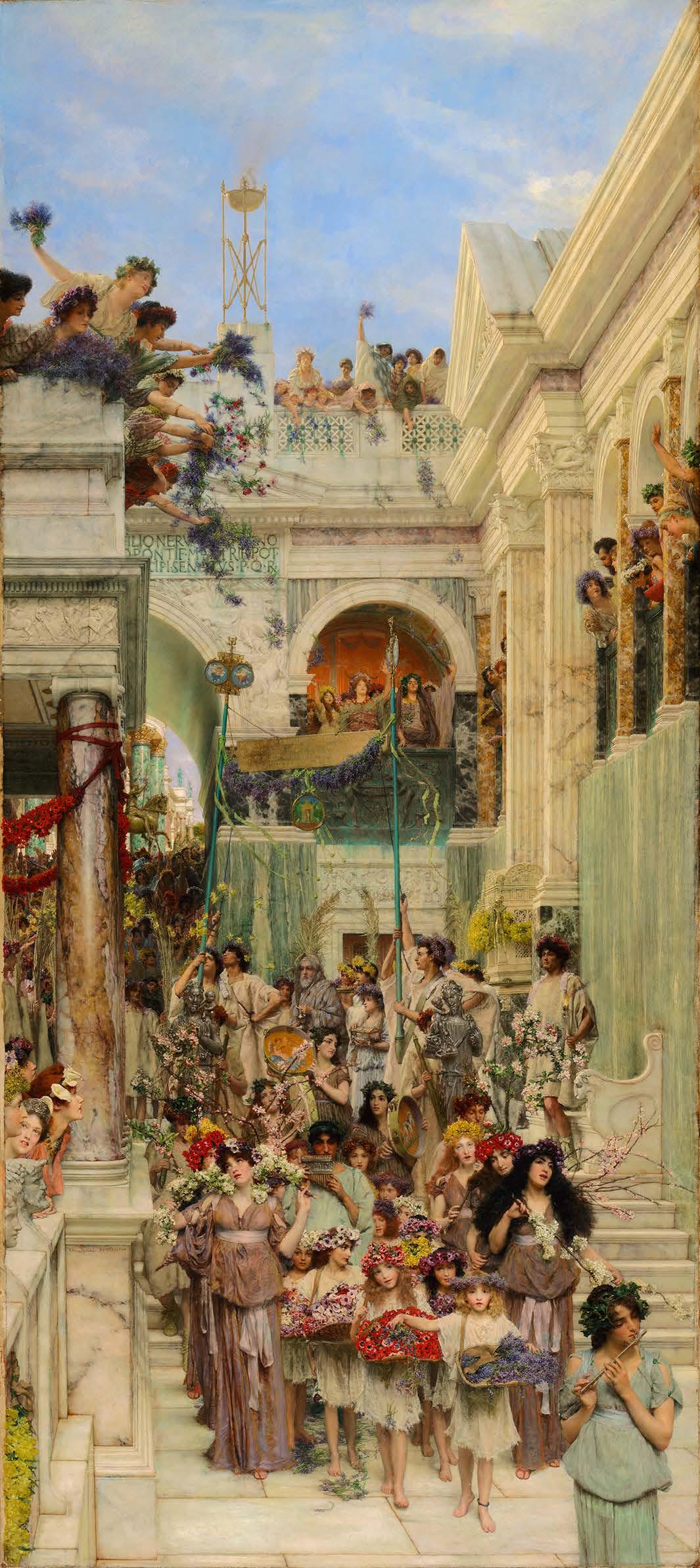
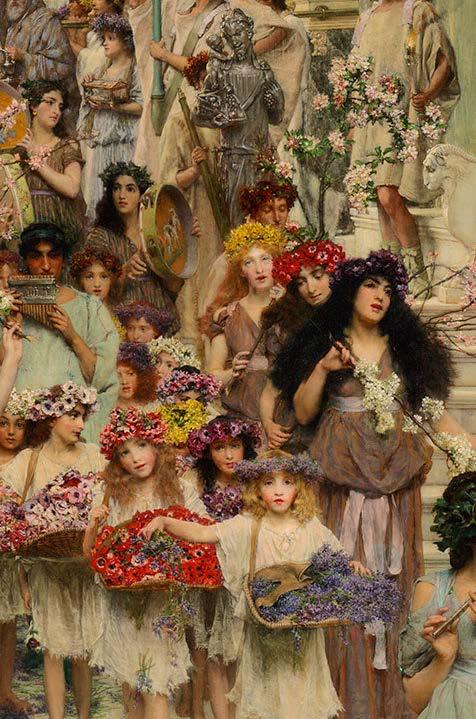
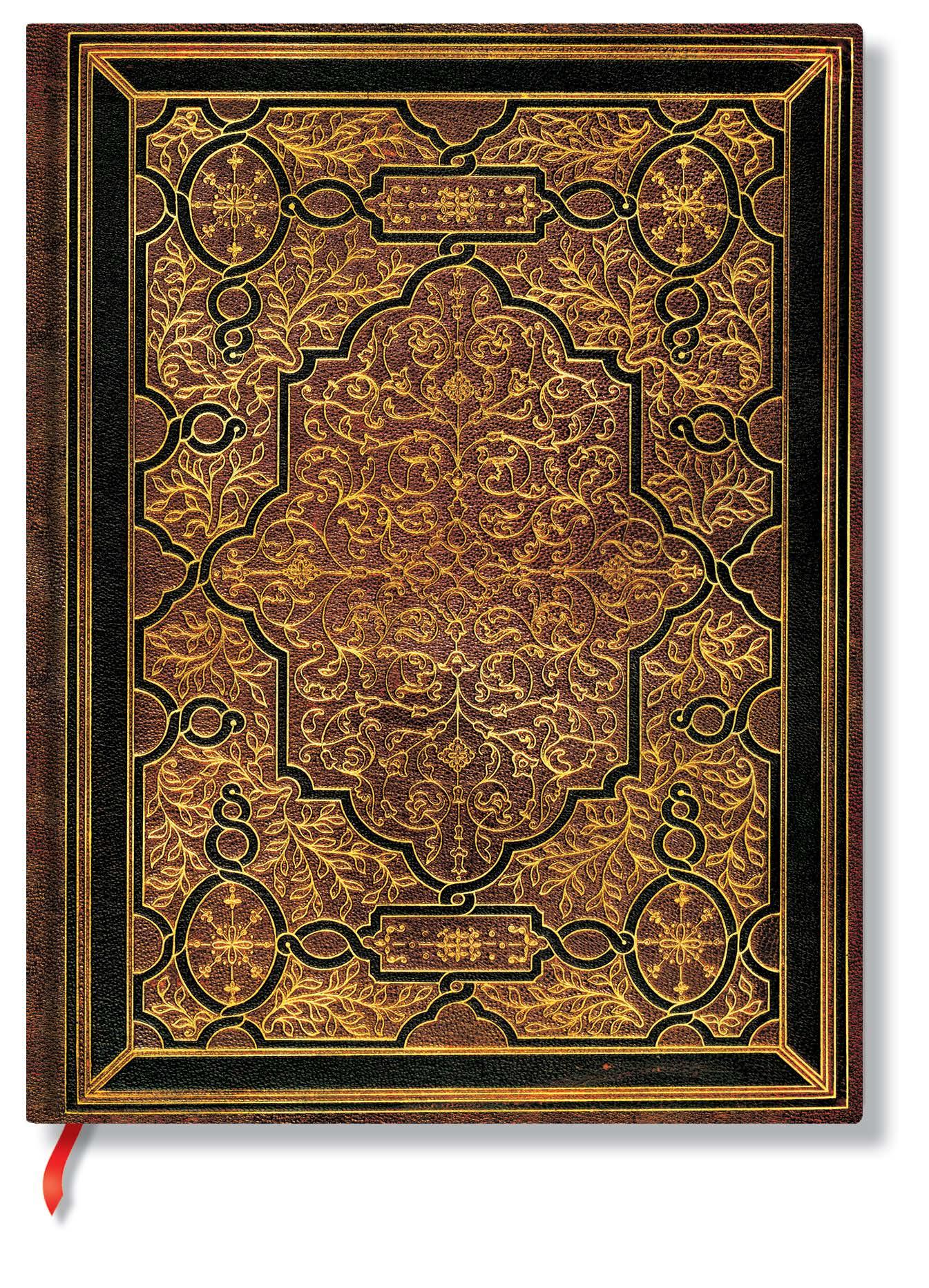
Pacifica
Available as: Grande, ultra, midi and mini hardcover journal and guest book
Original Artwork: William Seward Webb’s California and Alaska and Over the Canadian Pacific Railway book binding designed by Alice Cordelia Morse
Era: 1890
Region: New York City, USA
Current Location: The MET in New York City, USA
Background:
O This classical cover design reproduces a gold stamped, dark brown leather binding crafted by the American bookbinder Alice Cordelia Morse (1863–1961) to hold a copy of William Seward Webb’s California and Alaska and Over the Canadian Pacific Railway, a wellregarded travelogue first published in 1890.
O Morse was inspired by 16th-century fanfare bindings in designing this cover, which was sold as a deluxe gift edition limited to 500 copies, each costing $25 (quite the investment in the late 19th century!).
O This edition was published by G.P. Putnam’s Sons in New York and is currently one of 58 Alice Cordelia Morse book bindings held at the MET.
Fun Facts:
O Webb (1851–1926) began his career in medicine before turning to the family railroad business and often documented his adventures by train (or, iron horse) in illustrated notebooks.
O Morse is remembered for her ethos that the book designer must find a way to creatively depict the central themes of the contents in their cover design, believing that women were best suited to this craft due to their “intuitive sense of decoration, their feeling for beauty of line and harmony of colour.”
o In this binding, you can imagine her creating train tracks crisscrossing one of Webb’s maps in the gold stamping she designed.
Please note: All original images belong to the licensors and are to be shown internally for sales purposes only. Not to be reproduced, copied or otherwise removed from this sales document.
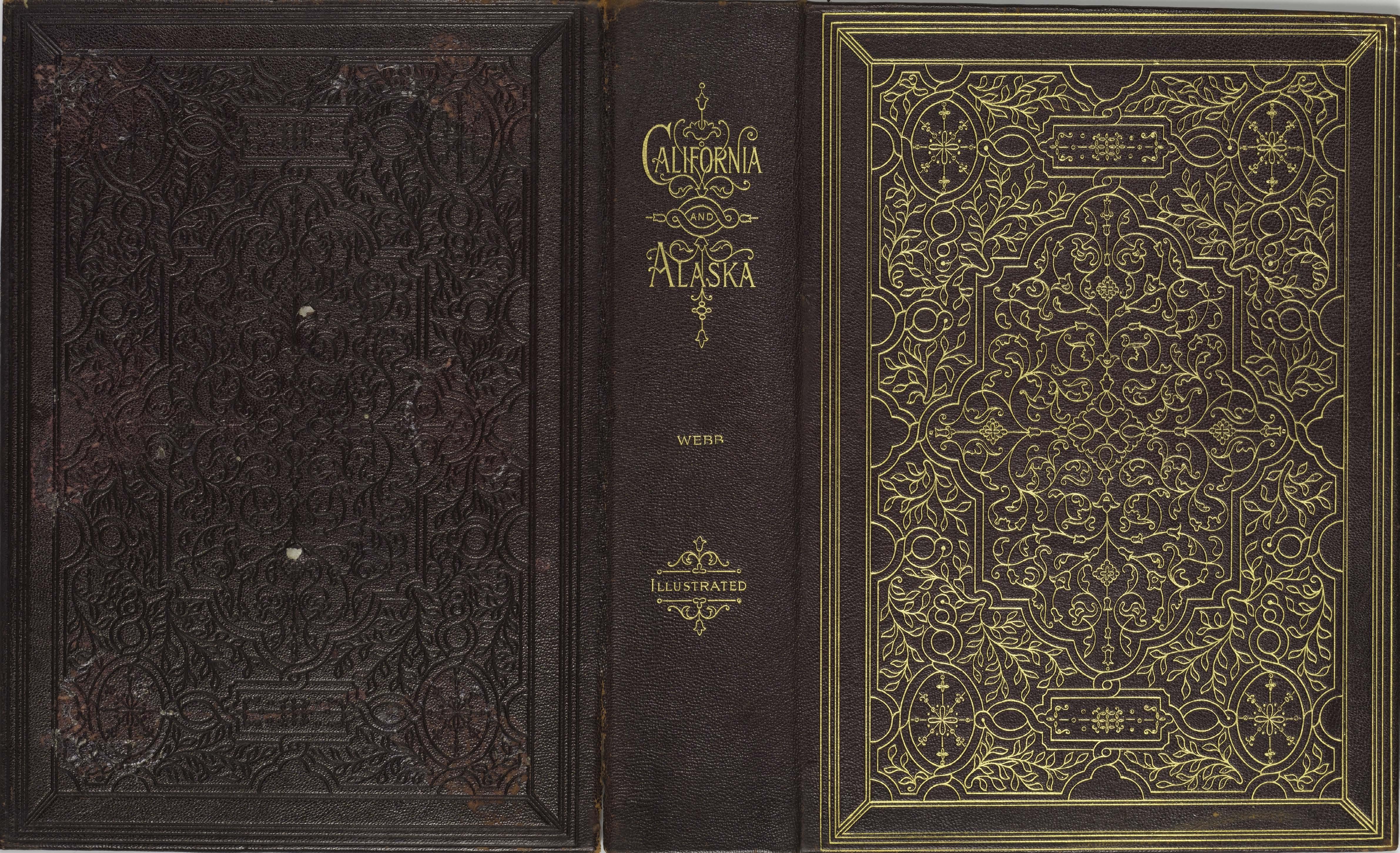
Please note: All original images belong to the licensors and are to be shown internally for sales purposes only. Not to be reproduced, copied or otherwise removed from this sales document.

Persian Poetry
Available as:
Ultra, midi and mini hardcover journal
Original Artwork: Persian binding of the Khamsa by Nizami
Era: 18th century
Region: Persia
Current Location: Bibliothèque nationale de France in Paris
Background:
O Our Layla design reproduces an 18th-century binding of the Khamsa, also known as the Panj Ganj (“Five Treasures”), the best-known work of the Persian poet Nizami Ganjavi which was written circa 1575.
o It was bound in Iran by Mohammed Sadeq.
O Nizami is considered to be the greatest romantic poet in Persian literary history.
O The Khamsa contains five long narrative poems, four of which were medieval romances with the first influenced by an early Sufi book of poetry by Sanai Ghaznavi known as The Garden of Truth.
Fun Facts:
O One of the stories included in the Khamsa, the romance of Layla Majnun, inspired Eric Clapton’s hit single “Layla” from the album Layla and Other Assorted Love Songs, which was highly influenced by Nizami’s poetry of unrequited love.
o In fact, the lyrics of the fifth song on the album, “I Am Yours,” were a Nizami composition set to music by Clapton.
O We first introduced the series Persian Poetry in Spring 2024 with The Orchard, a cover reproducing a 17th-century binding of the Bustan by the poet and prose writer Saadi (1210–1291).
Please note: All original images belong to the licensors and are to be shown internally for sales purposes only. Not to be reproduced, copied or otherwise removed from this sales document.
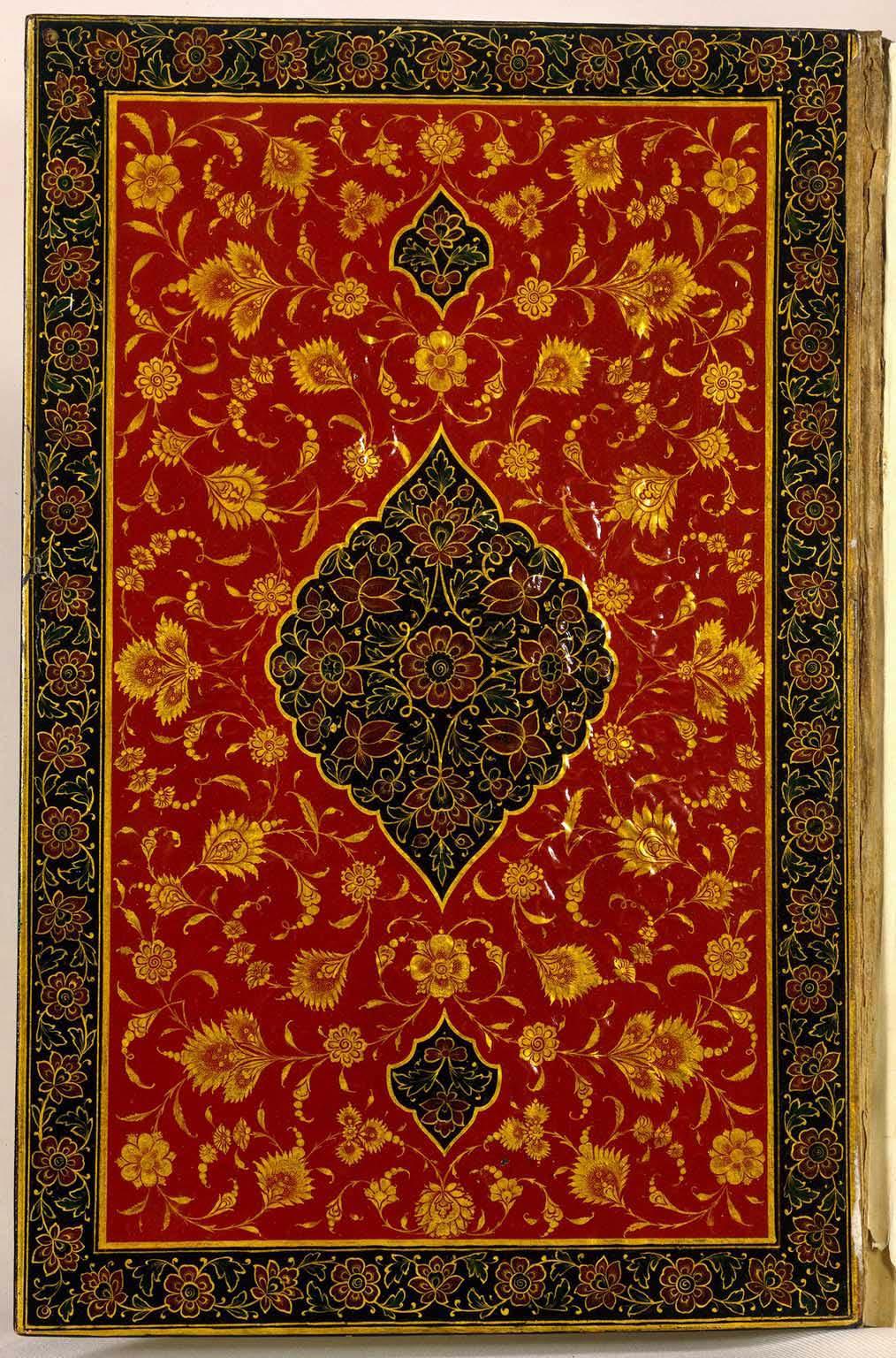
Please note: All original images belong to the licensors and are to be shown internally for sales purposes only. Not to be reproduced, copied or otherwise removed from this sales document.
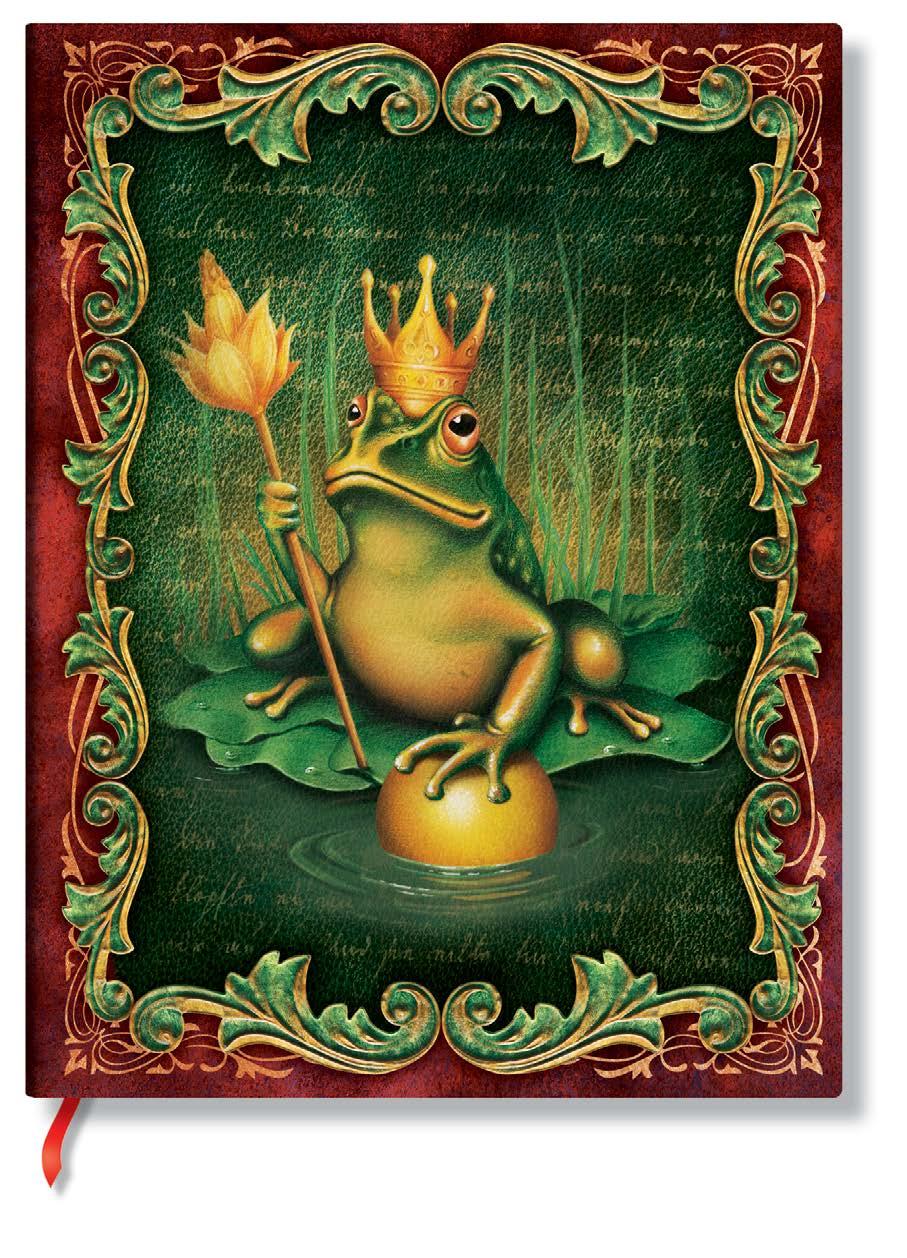
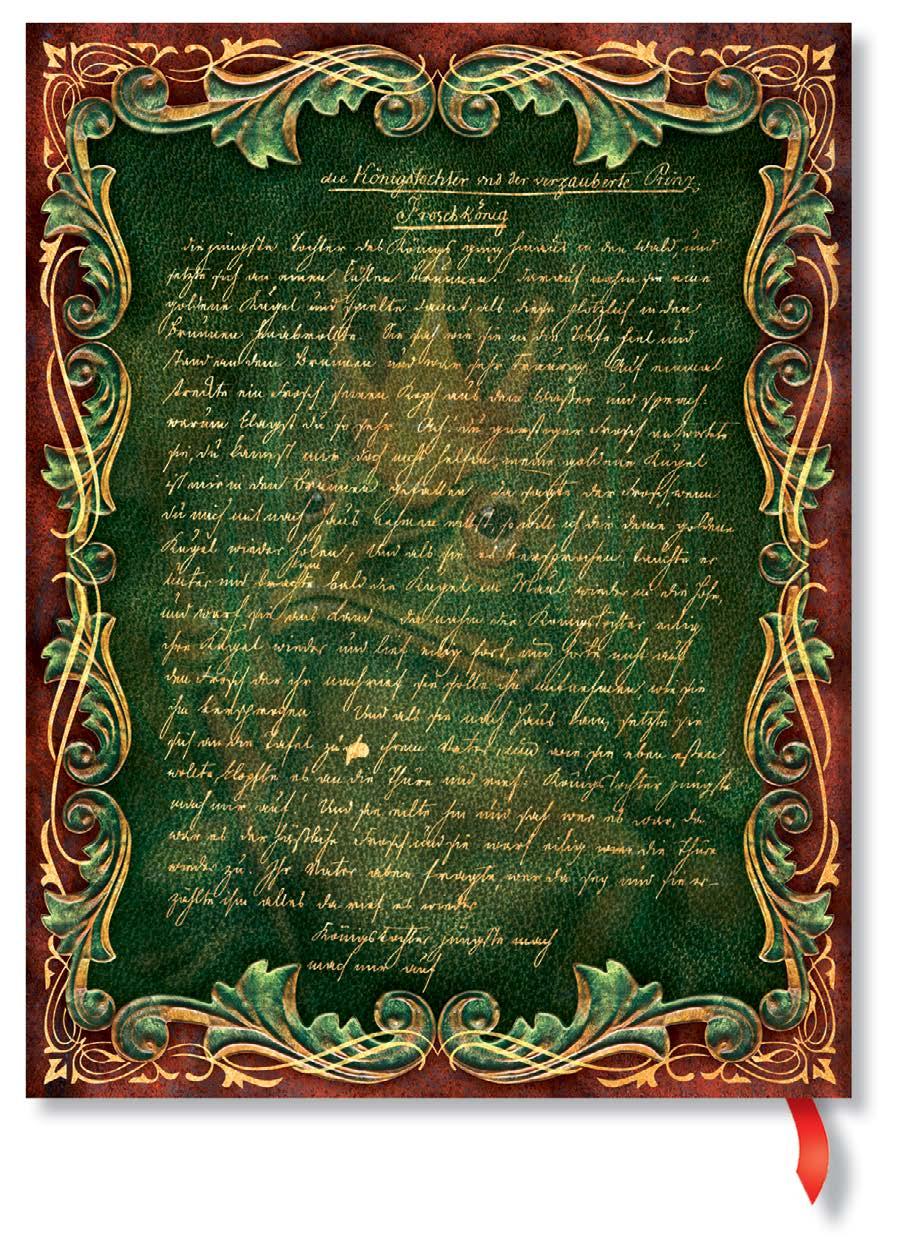
Available as:
Ultra and midi hardcover journal, bookmark and pencil case
Original Artwork: Handwritten draft of “The Frog Prince” by the Brothers Grimm Era: 1812
Region: Germany
Current Location: Bodmer Foundation in Cologny, Switzerland (manuscript), illustration created in-house at our Vancouver, Canada office
Background:
O “The Frog Prince” is a German fairy tale collected by the Brothers Grimm and published as the first story in their folktale collection known as Grimms’ Fairy Tales.
O When translated from the original German the story is known as “The Frog King,” but it is now best-known around the world as “The Frog Prince.”
O The Brothers Grimm are famous for curating and publishing fairy tales from German folklore that had traditionally been passed down orally.
O Many of these tales were originally very violent and moralistic, and over the years the Grimms “sanitized” them for a younger audience – these became the Disney versions many of us grew up with.
Fun Facts:
O This handwritten manuscript comes from the Bodmer Foundation, a Swiss library and museum specializing in manuscripts and first editions, including works by Homer, William Shakespeare and Johann Wolfgang von Goethe.
o They recently exhibited the Grimms’ original Kinder- und Hausmärchen manuscripts at the MEG (Geneva Ethnographic Museum).
O Other Brothers Grimm titles we have planned for this Fairy Tale Collection include “Sleeping Beauty,” “Rumpelstiltskin” and “Snow White,” in addition to “Princess and the Pea,” “Thumbelina” and “The Little Mermaid” by H.C. Andersen.
Please note: All original images belong to the licensors and are to be shown internally for sales purposes only. Not to be reproduced, copied or otherwise removed from this sales document.
Fairy Tale Collection Front Back
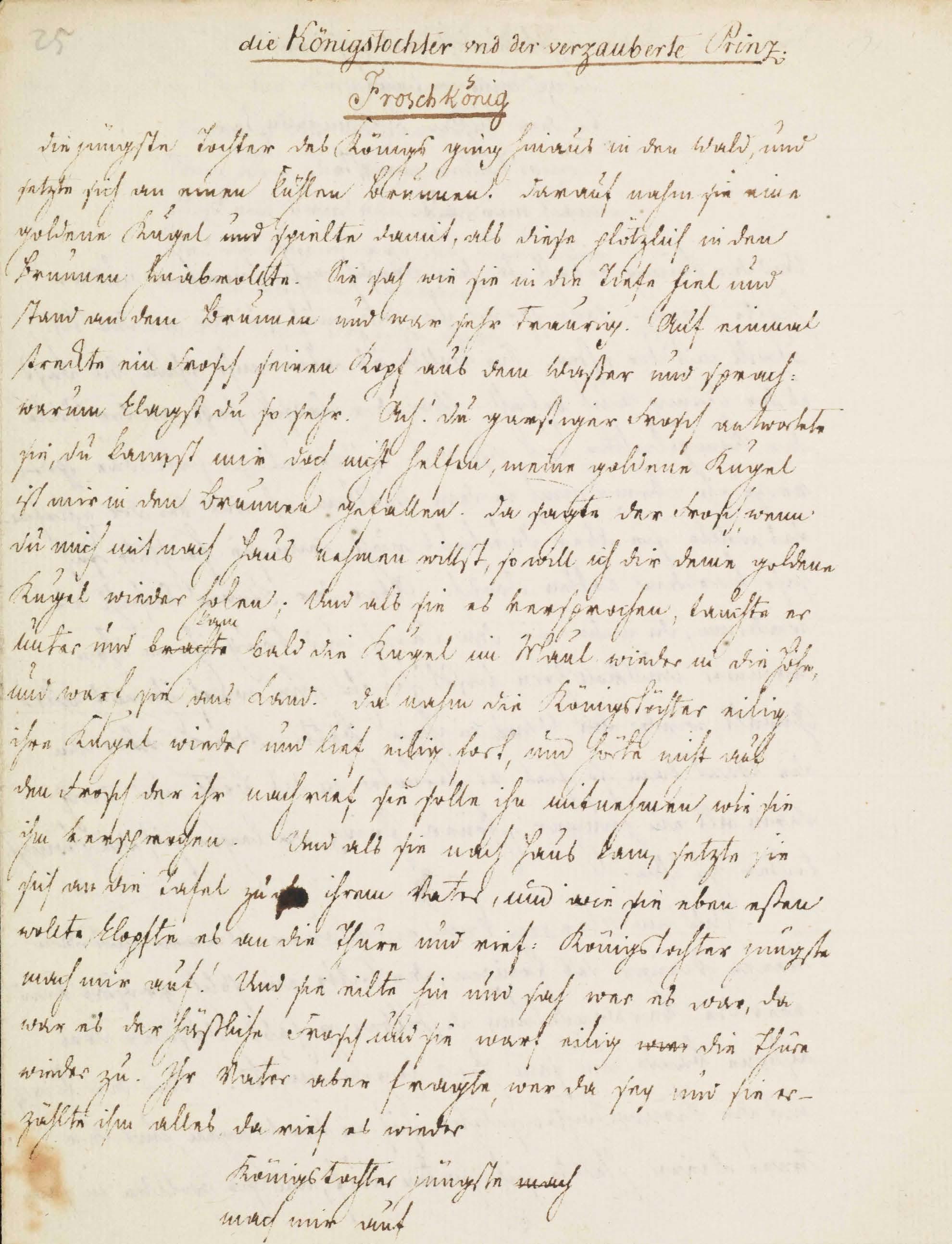
Please note: All original images belong to the licensors and are to be shown internally for sales purposes only. Not to be reproduced, copied or otherwise removed from this sales document.
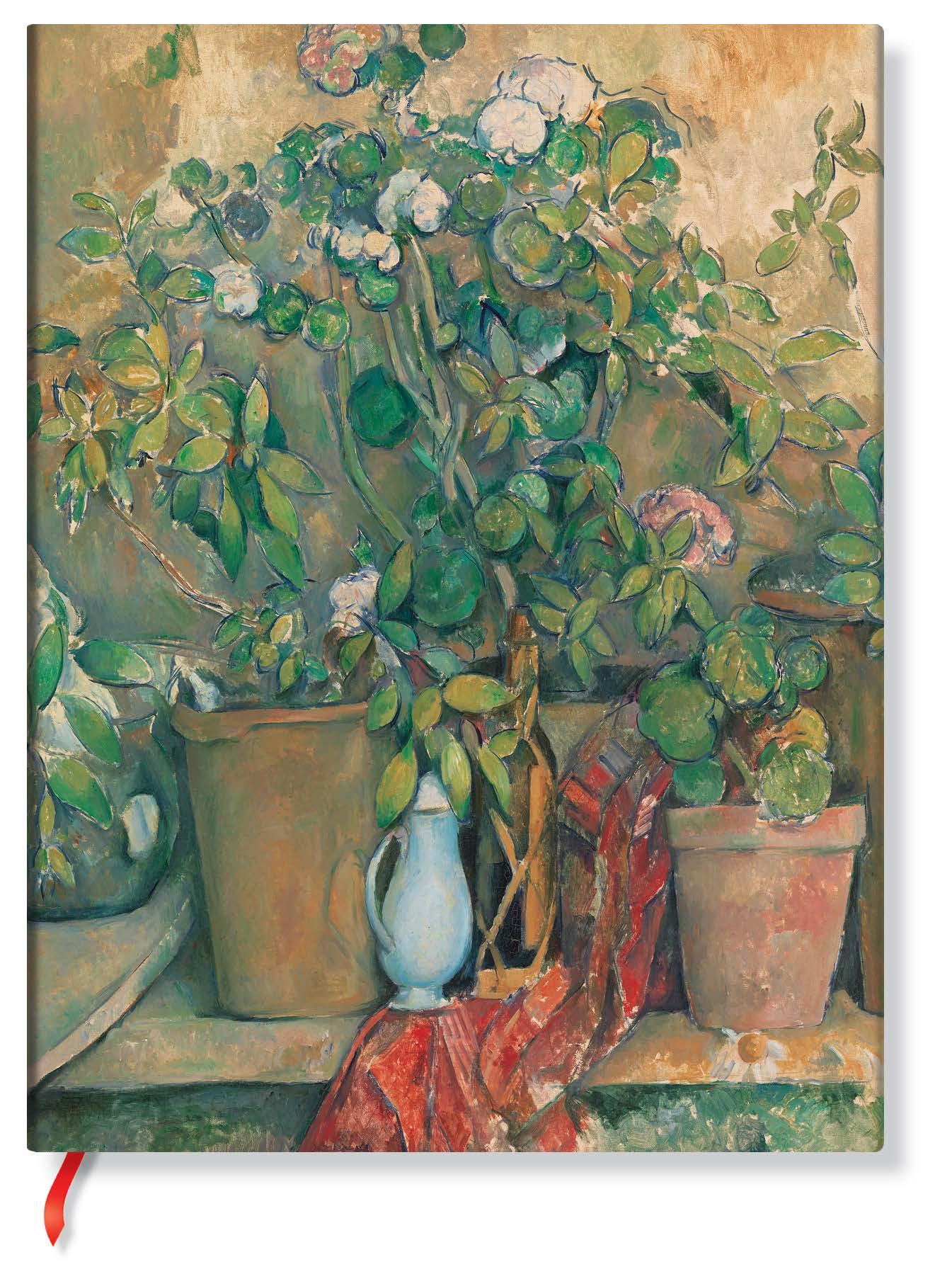
The Barnes Collection
Cezanne’s Terracotta Pots and Flowers
Available as:
Ultra, midi and mini hardcover journal, bookmark, canvas bag, jigsaw puzzle and pencil case
Original Artwork: Terracotta Pots and Flowers painting by Paul Cézanne (oil on canvas)
Era: 1891–1892
Region: France
Current Location: Barnes Foundation Collection in Philadelphia, USA
Background:
O Paul Cézanne (1839–1906) was a French painter who is regarded as one of the greatest of the Post-Impressionists.
O He was often called the “Father of Modern Art,” and his works and ideas were influential in the aesthetic development of many 20th-century artists and art movements.
O Reproduced here is a work from his later years, Terracotta Pots and Flowers (1891–1892), which saw Cézanne enter a new world of still life painting.
O His works such as this one explored the connections and harmonies between everyday objects.
Fun Facts:
O We are honoured to feature this pivotal painting from the Barnes Foundation, an educational institution based in Philadelphia, as the first release from our new collaborative collection.
O Cézanne bridged the gap between Impressionism and cubism, and his representation of three-dimensional forms was a primary influence of cubists and modern artists like Matisse, Picasso, Gauguin, Kandinsky and Mondrian.
Please note: All original images belong to the licensors and are to be shown internally for sales purposes only. Not to be reproduced, copied or otherwise removed from this sales document.
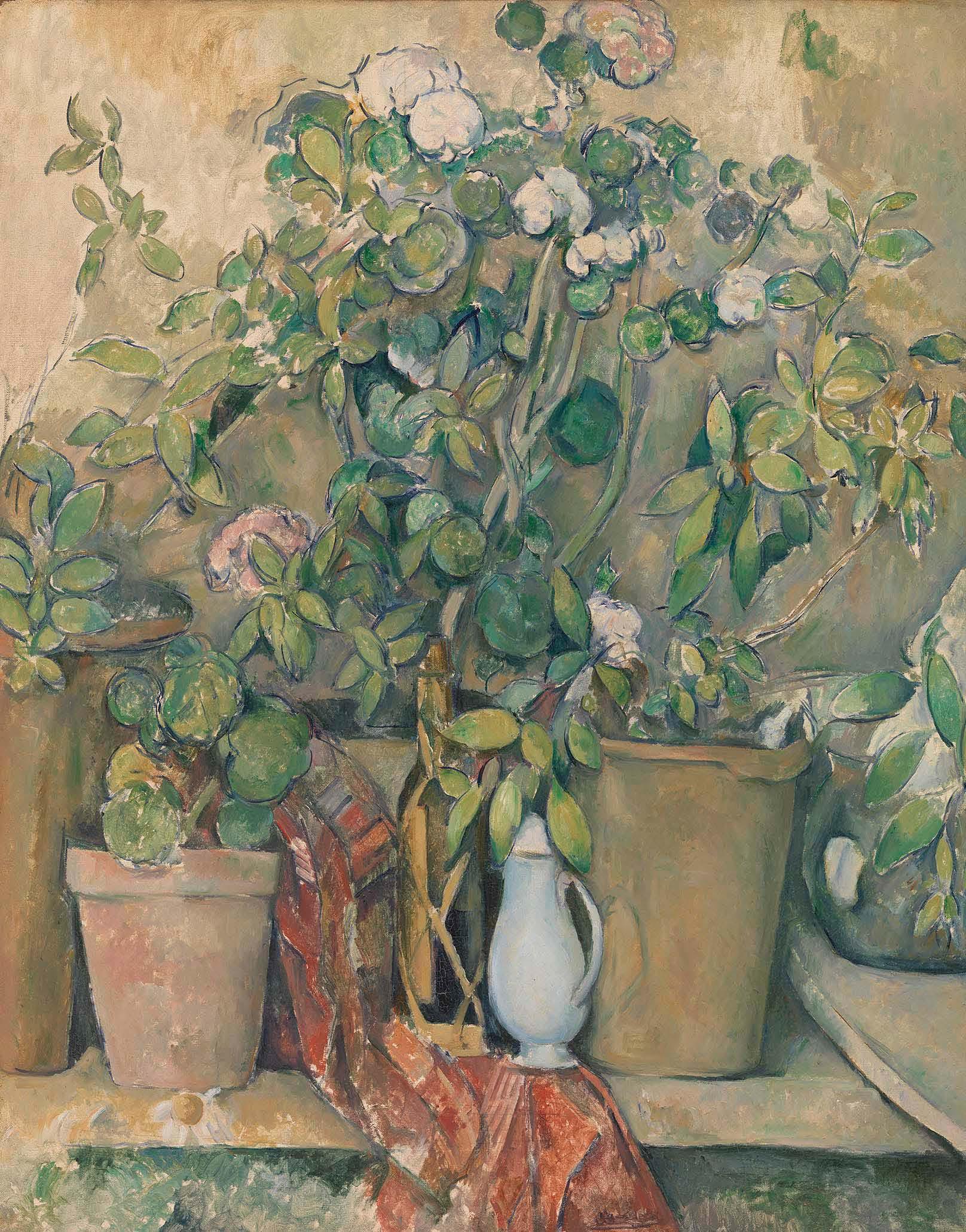
Please note: All original images belong to the licensors and are to be shown internally for sales purposes only. Not to be reproduced, copied or otherwise removed from this sales document.
(AND ASSOCIATED PRODUCTS)
Original Artwork: Artwork from Enid Blyton’s children’s book series The Famous Five Era: Mid-20th century
Region: England
Current Location: Enid Blyton Estate in London, UK
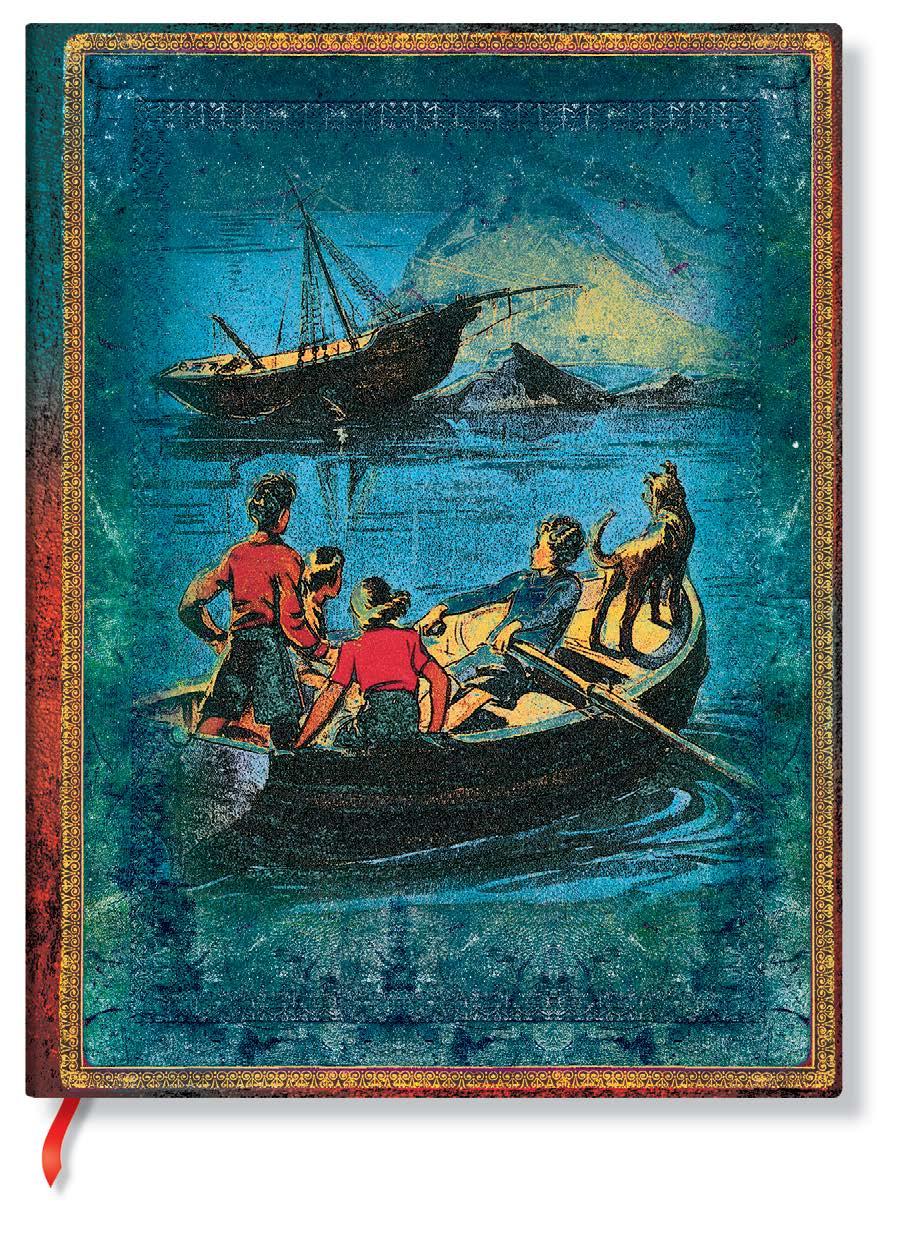
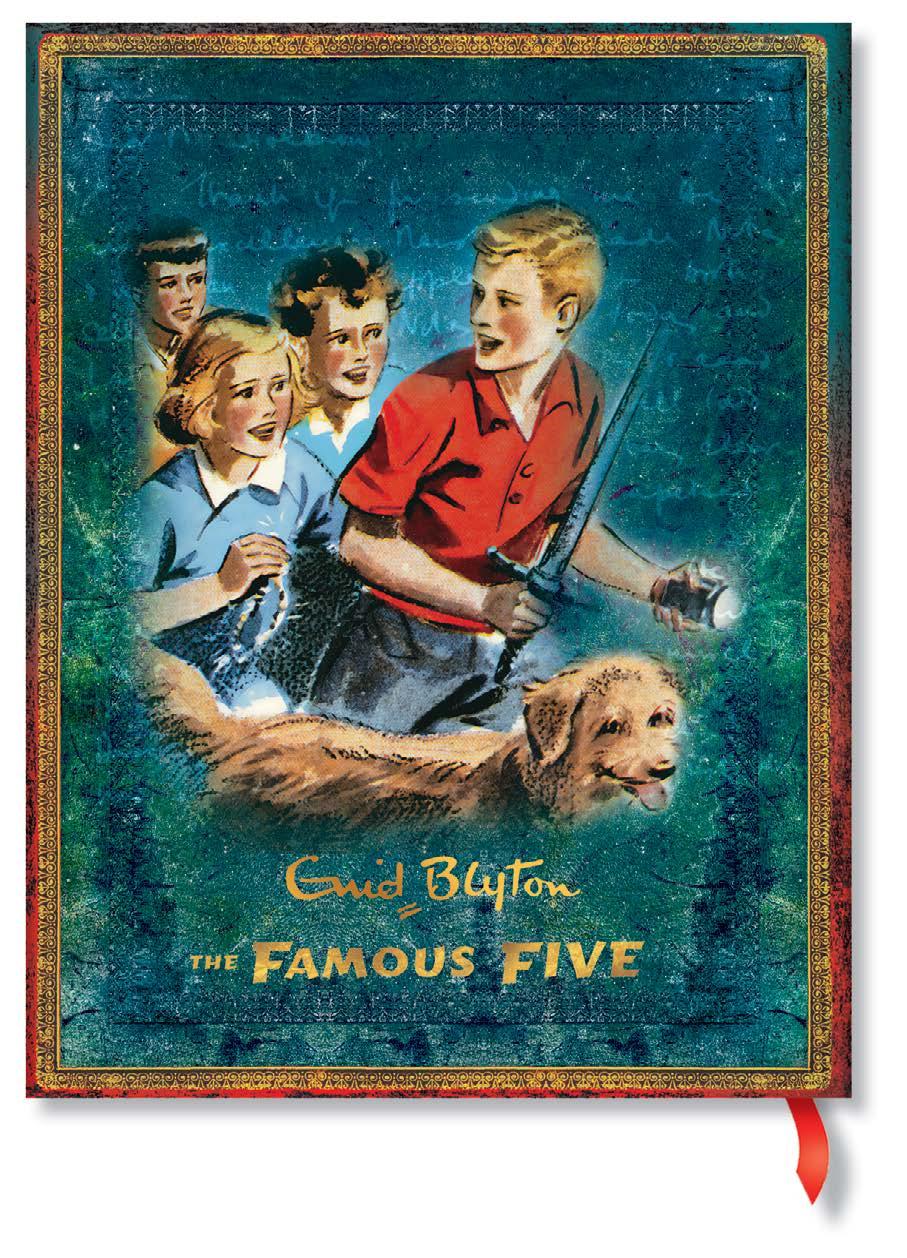
Enid Blyton
Available as:
Ultra, midi and mini softcover Flexi notebook, bookmark and canvas bag
Background:
O This new design celebrates the lasting legacy of the works of Enid Blyton (1897–1968) and her illustrator Eileen Soper (1905–1990), in particular the children’s book series The Famous Five.
O The Famous Five stories centre around a group of four cousins – Julian, Dick, Anne and George – and George’s dog, Timmy.
O Reproduced here are the illustrations by Soper from the cover of two books in the series, Five on a Treasure Island and Five on Finniston Farm.
Fun Facts:
O To call her prolific would be an understatement: Blyton penned over 700 books and thousands of short stories that captured an idyllic childhood full of adventure in the countryside.
O The BBC, in co-production with the German channel ZDF, recently announced a new adaptation of The Famous Five which will consist of three 90-minute episodes created by Danish director Nicolas Winding Refn (Drive, The Neon Demon) and will be aimed at a “progressive new audience.”
Please note: All original images belong to the licensors and are to be shown internally for sales purposes only. Not to be reproduced, copied or otherwise removed from this sales document.
Front Back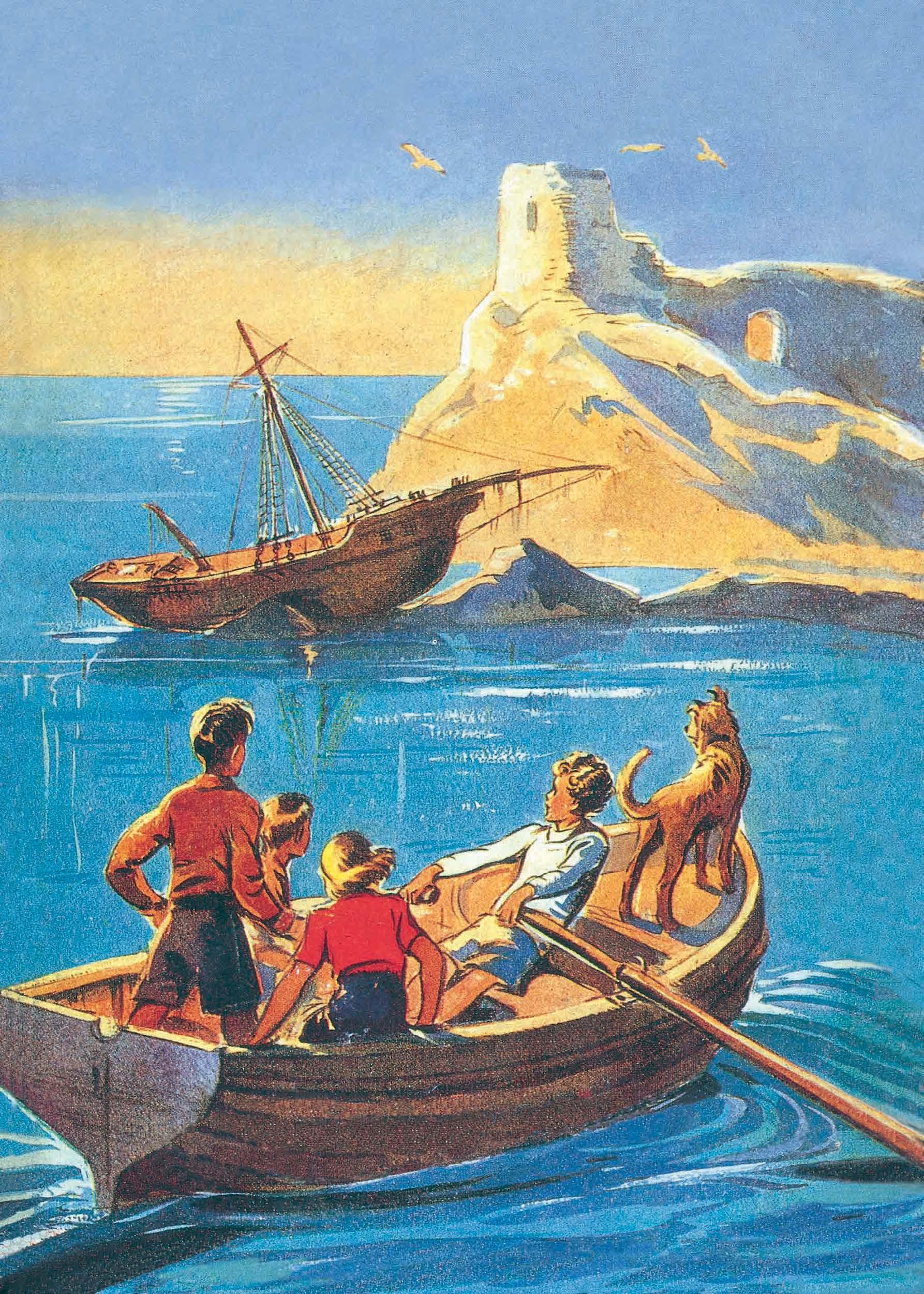
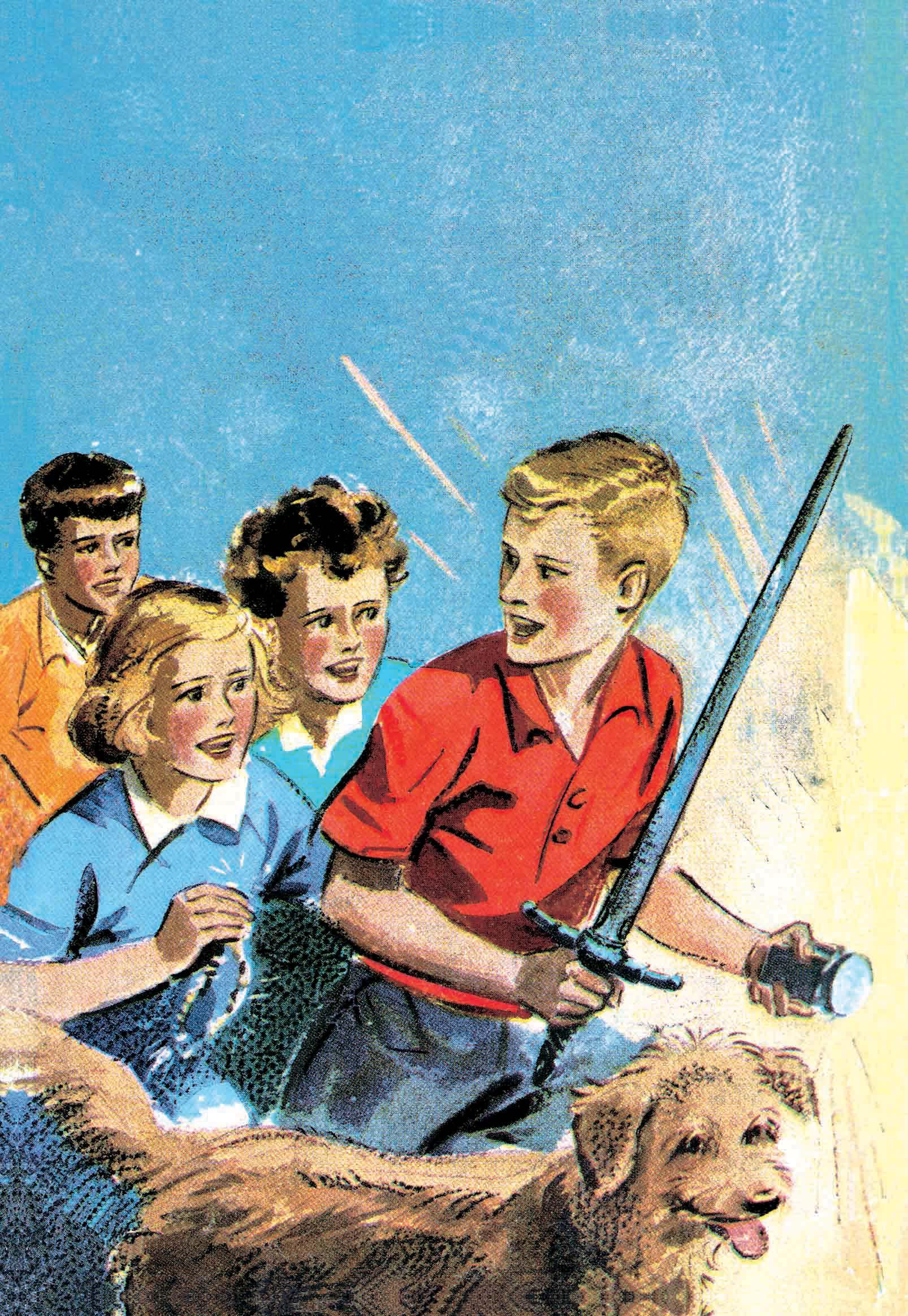
Please note: All original images belong to the licensors and are to be shown internally for sales purposes only. Not to be reproduced, copied or otherwise removed from this sales document.
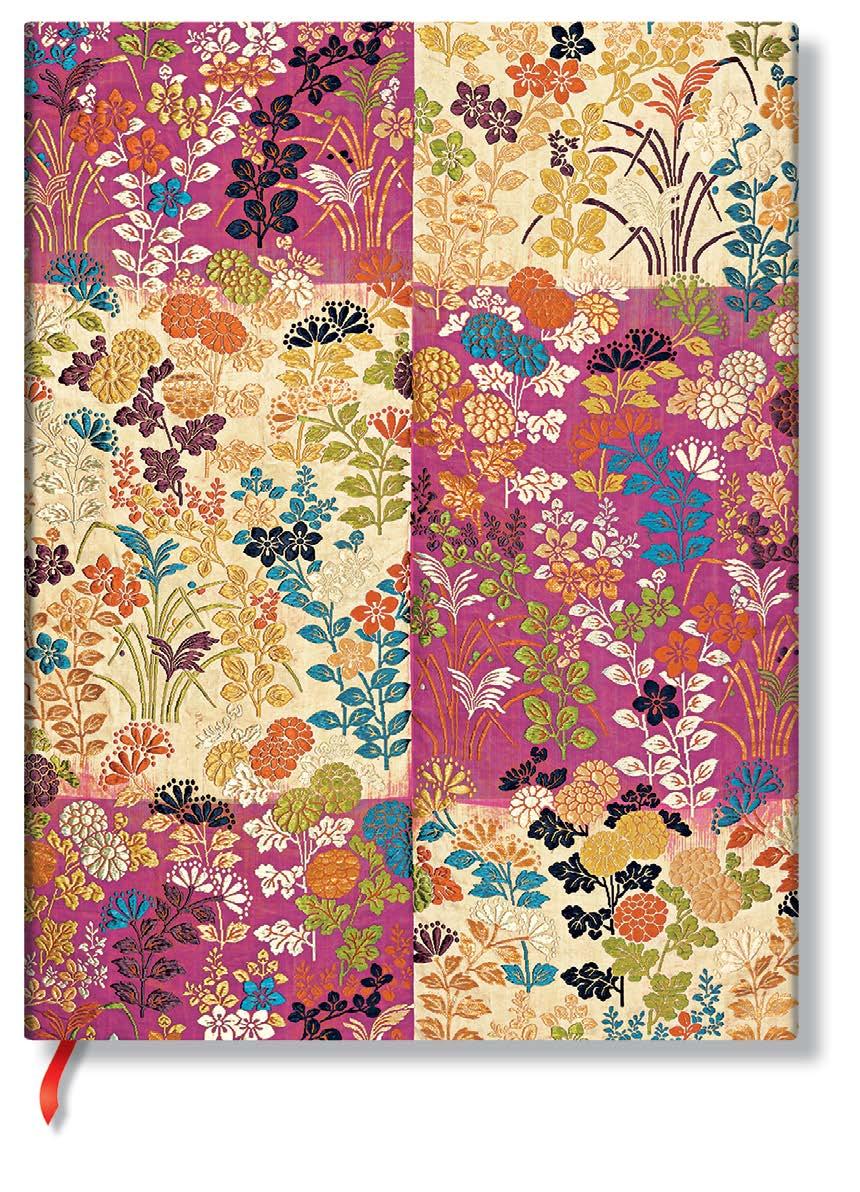
Available as:
Ultra, midi and mini softcover Flexi notebook, bookmark and pencil case
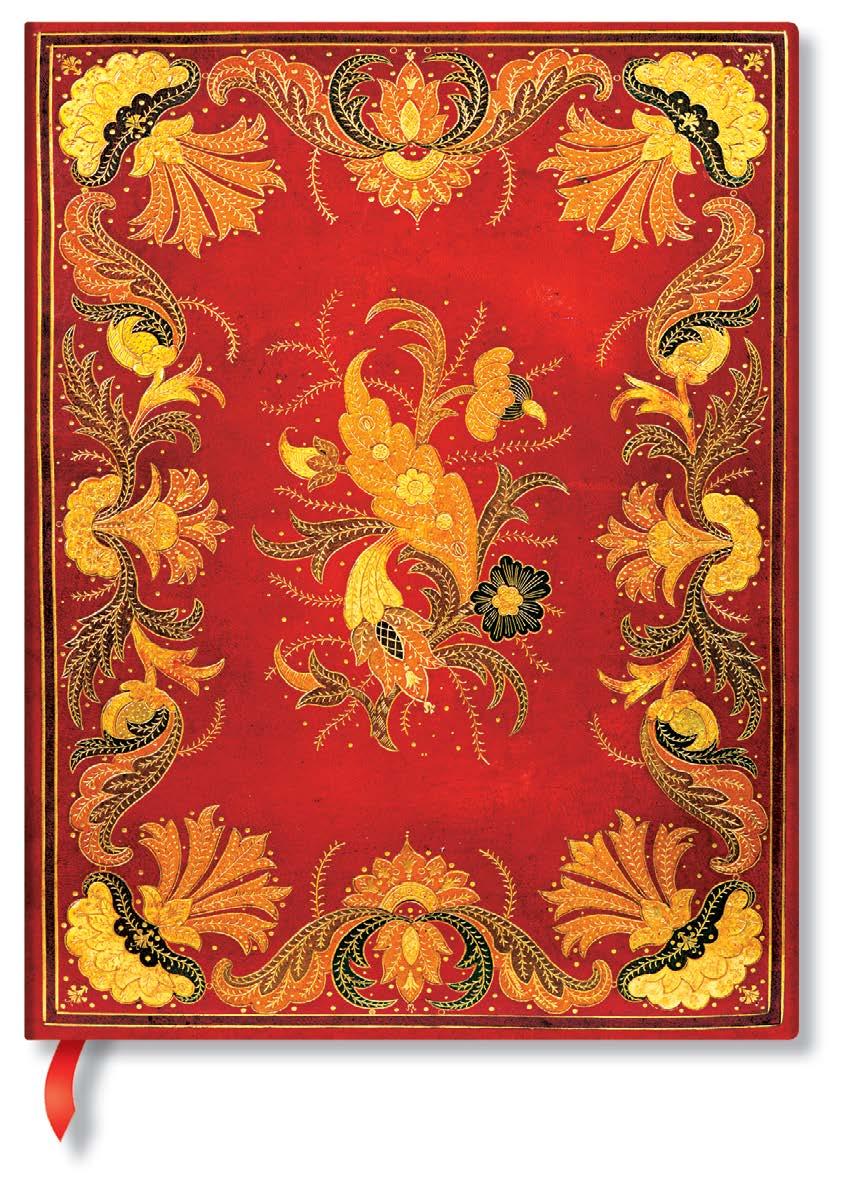
Available as:
Ultra, midi and mini softcover Flexi notebook
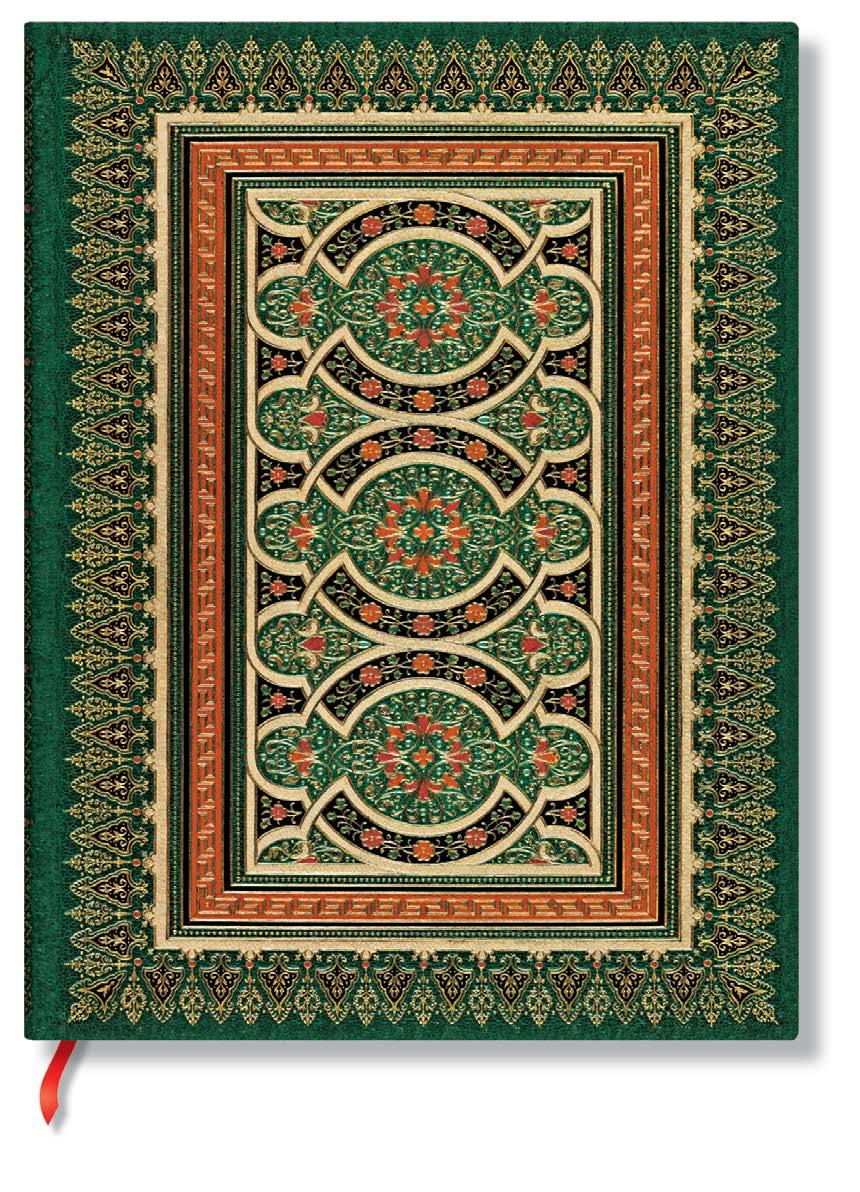
Available as:
Ultra, midi and mini softcover Flexi notebook
Original Artwork: Karaori costume design for Noh theatre
Era: 18th century
Region: Japan
Current Location: The Art Institute of Chicago, USA
O Following the success of our first Kara-ori design, released in Fall 2022 with a coralinspired colour scheme, we are introducing Kara-ori Pink for Fall 2024.
O This kimono design dates to the Edo period (1615–1868), when it was used as a costume for the theatrical style known as Noh.
Original Artwork: Binding for an edition of The Decameron of Giovanni Boccaccio
Era: 1725 binding (14th-century story)
Region: French binding (Italian story)
Current Location: Condé Museum in Chantilly, France
O This Baroque-inspired design comes from a 1725 binding of The Decameron of Giovanni Boccaccio
O Originally released in Spring 2022, Fiammetta is also available as a hardcover journal, address book, bookmark and pencil case.
Please note: All original images belong to the licensors and are to be shown internally for sales purposes only. Not to be reproduced, copied or otherwise removed from this sales document.
Original Artwork: Daphnis and Chloe book binding by Émile-Philippe Mercier
Era: 1910 binding, 2nd-century story
Region: France and Greece
Current Location: The New York Public Library in New York City, USA
O Daphnis was originally released along with its sister design, Chloe, as a hardcover journal in 2017.
O It reproduces a binding designed by ÉmilePhilippe Mercier for Jacques Amyot’s French translation of Daphnis and Chloe, a romantic story composed by the 2nd-century Greek author Longus.
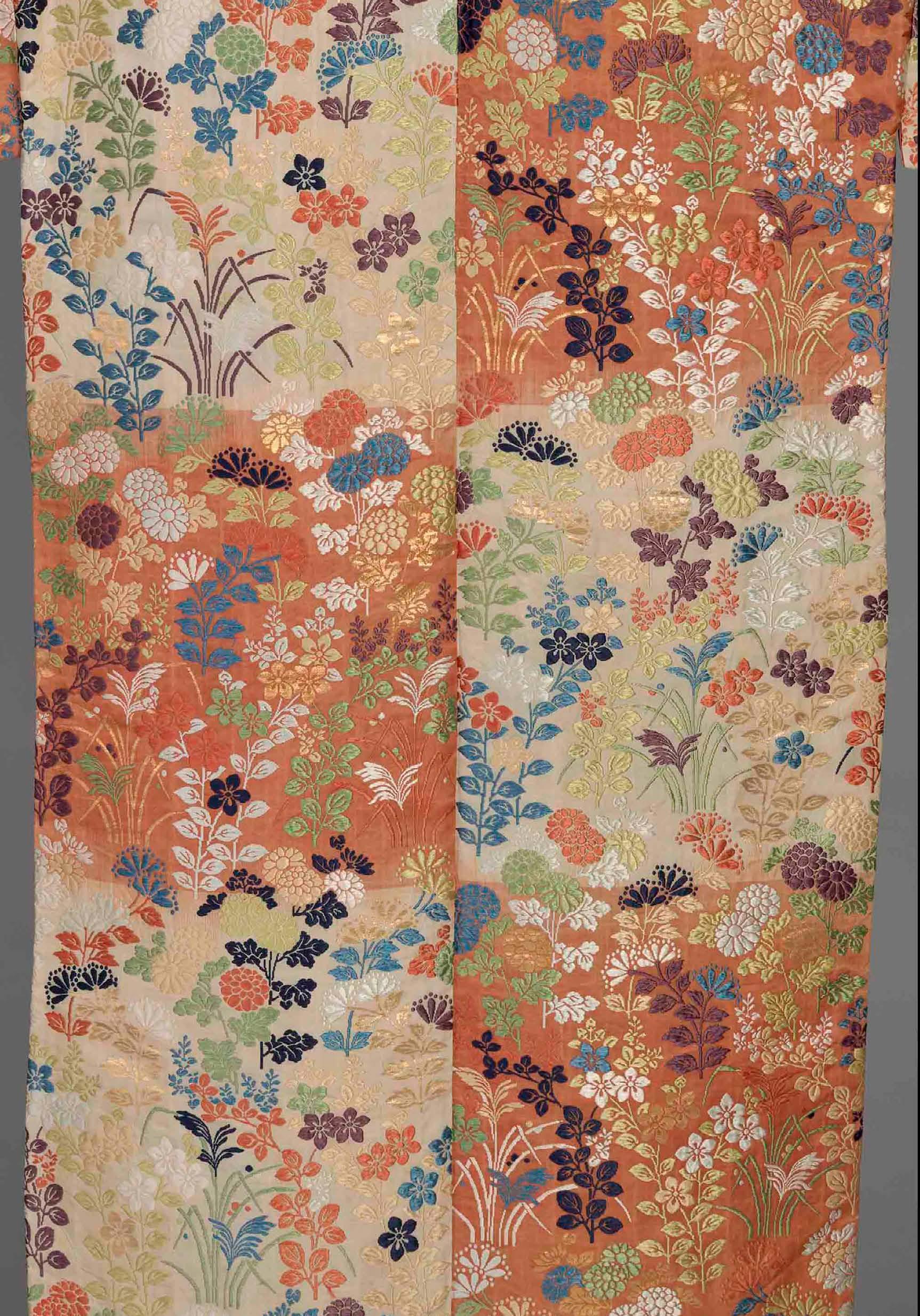
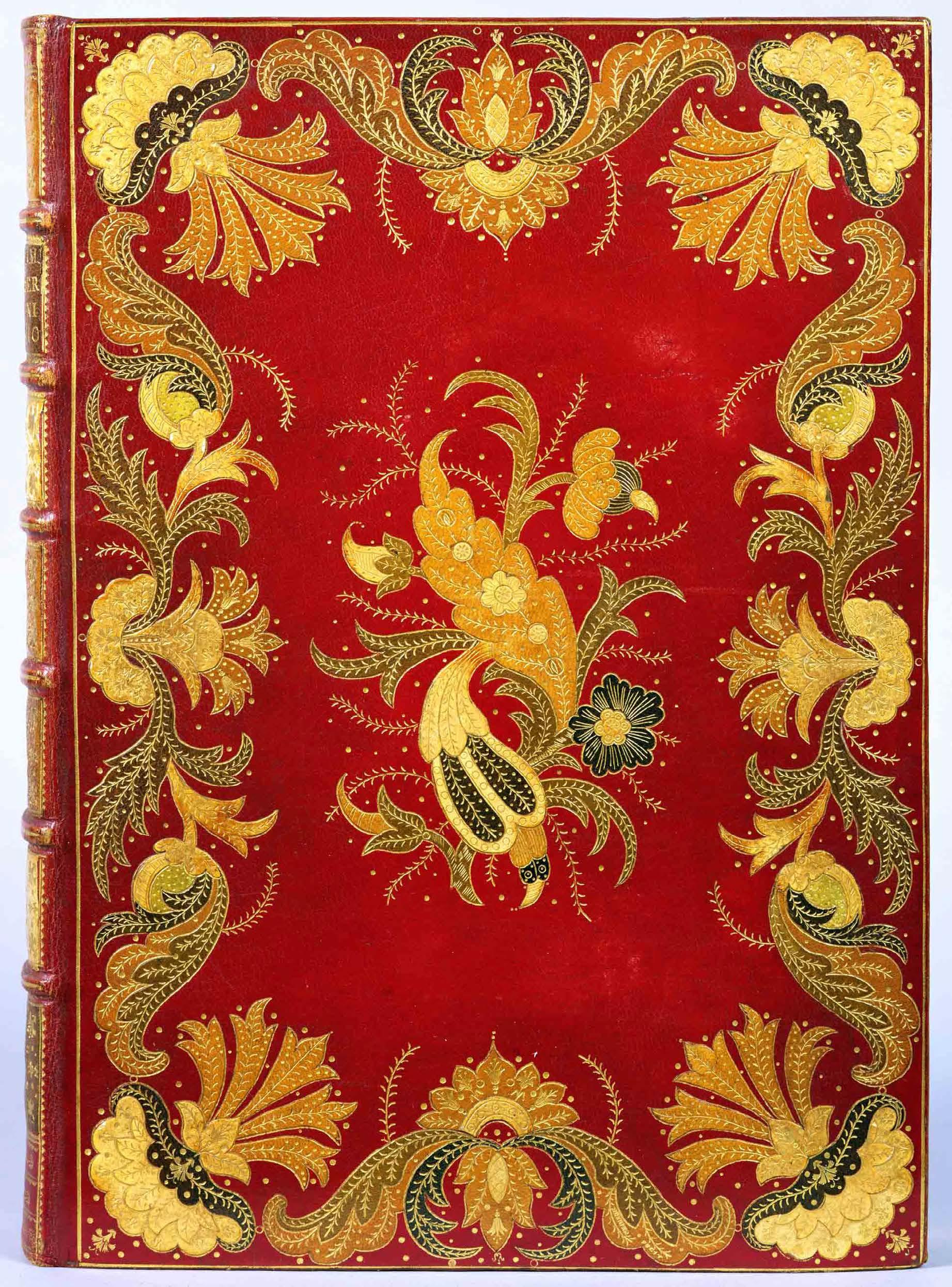
Please note: All original images belong to the licensors and are to be shown internally for sales purposes only. Not to be reproduced, copied or otherwise removed from this sales document.
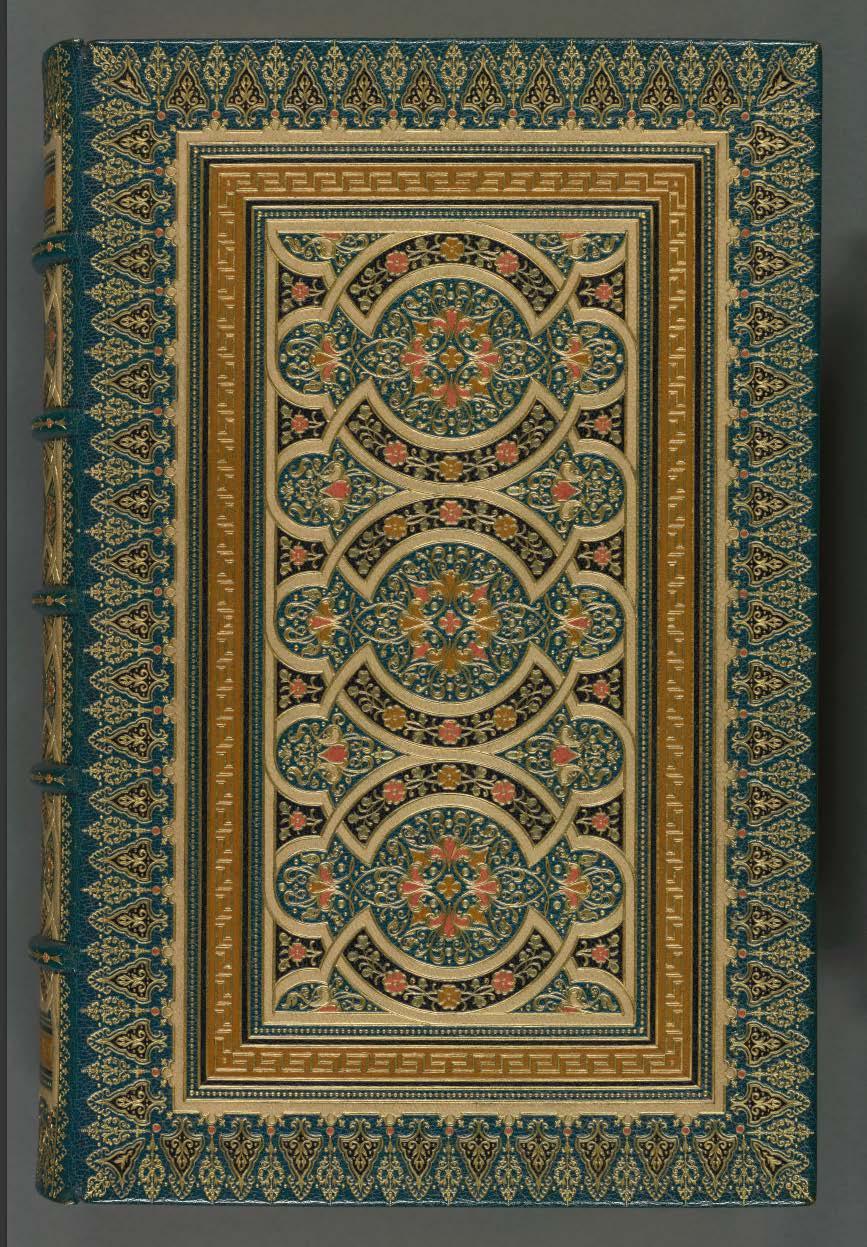
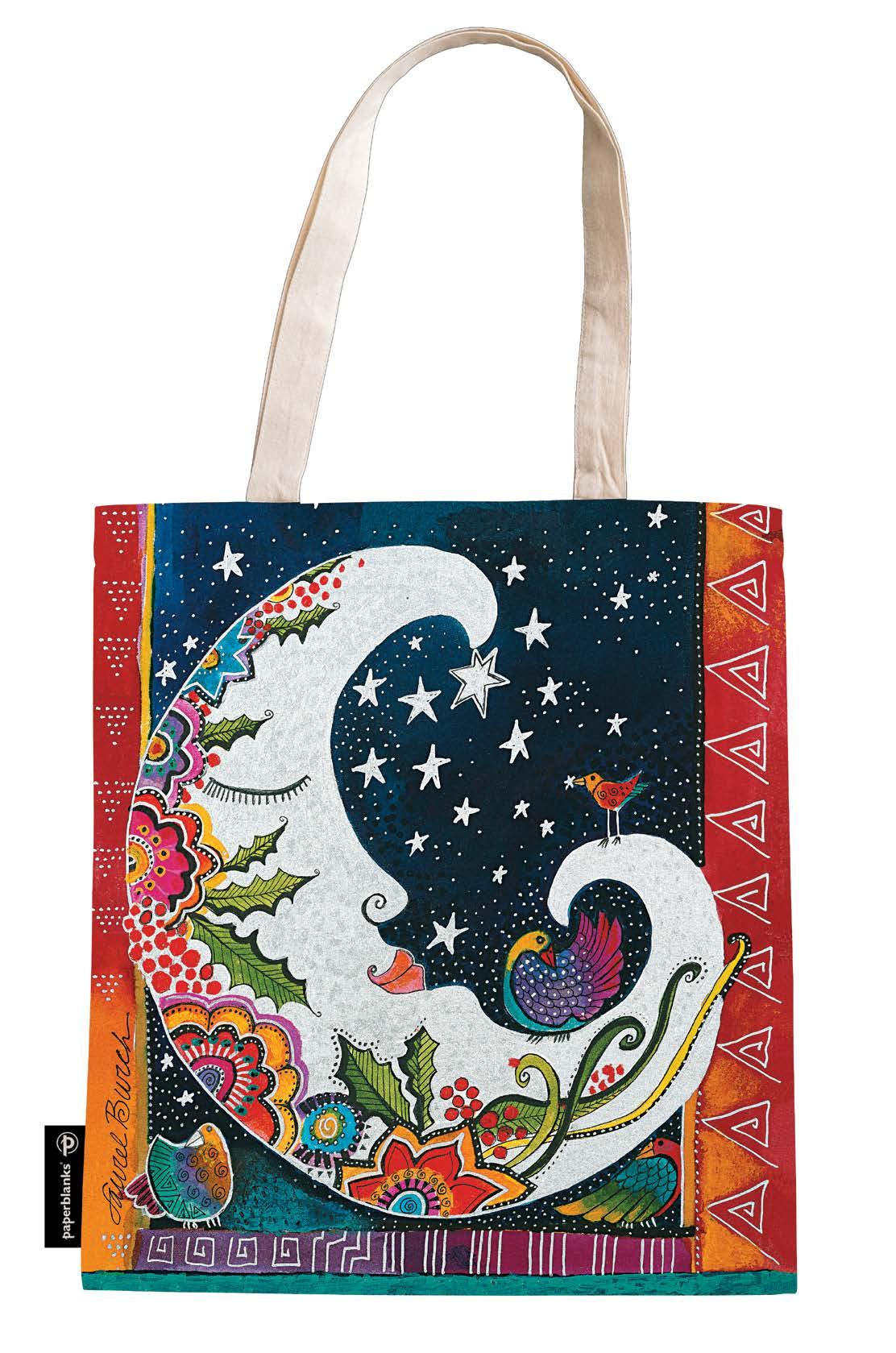
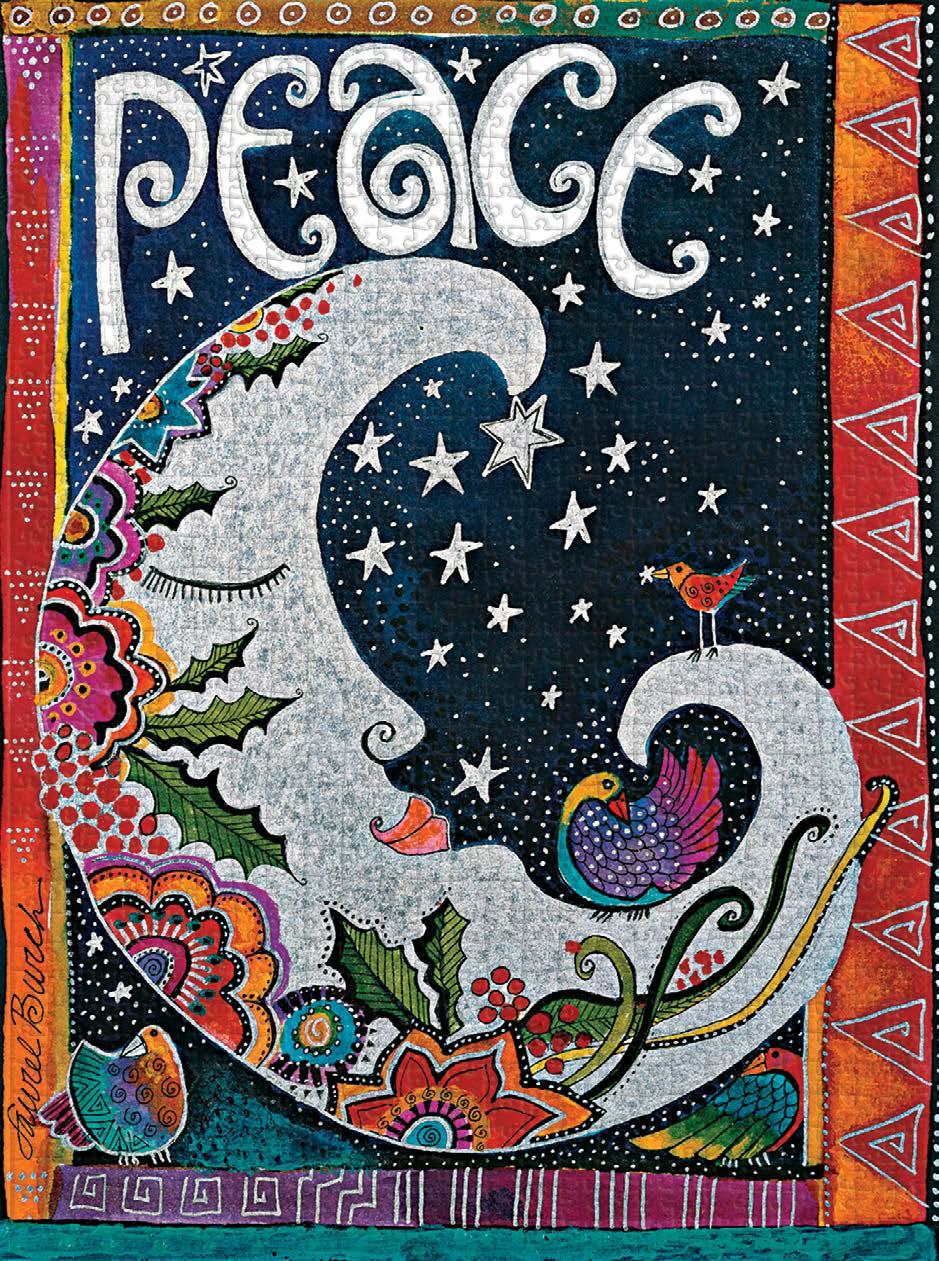
Original Artwork: Painting by Laurel Burch
Era: Contemporary
Region: San Francisco, United States
Current Location: Archives of the Laurel Burch Estate
Background:
O Laurel Burch (1945–2007) was a self-taught artist and “flower child” who began handcrafting one-of-a-kind jewellery in the 1960s in San Francisco’s Haight Ashbury district when she was only 19.
O By the 1970s, she was an internationally known artist and designer with a recognizable palette and style.
O Our experience in knowing Laurel Burch personally has inspired our multiple collections with designs featuring her artwork.
Fun Facts:
O Peace was originally offered as a micro format hardcover journal as part of our Spring 2010 collection.
O In continuing our celebration of 50 years of Laurel Burch’s artistic influence and legacy, we are pleased to bring back this lovely design as a jigsaw puzzle and canvas bag.
Laurel Burch Collection
Playful Creations
Available as:
bag and jigsaw puzzle
Please note: All original images belong to the licensors and are to be shown internally for sales purposes only. Not to be reproduced, copied or otherwise removed from this sales document.
canvas Canvas Bag Jigsaw Puzzle
Please note: All original images belong to the licensors and are to be shown internally for sales purposes only. Not to be reproduced, copied or otherwise removed from this sales document.







Please note: All original images belong to the licensors and are to be shown internally for sales purposes only. Not to be reproduced, copied or otherwise removed from this sales document.
Midnight Rebel Kara-ori Pink The Brothers Grimm, Frog Prince Gaudi, The Manuscript of Reus The Famous Five Cezanne’s Terracotta Pots and Flowers Spring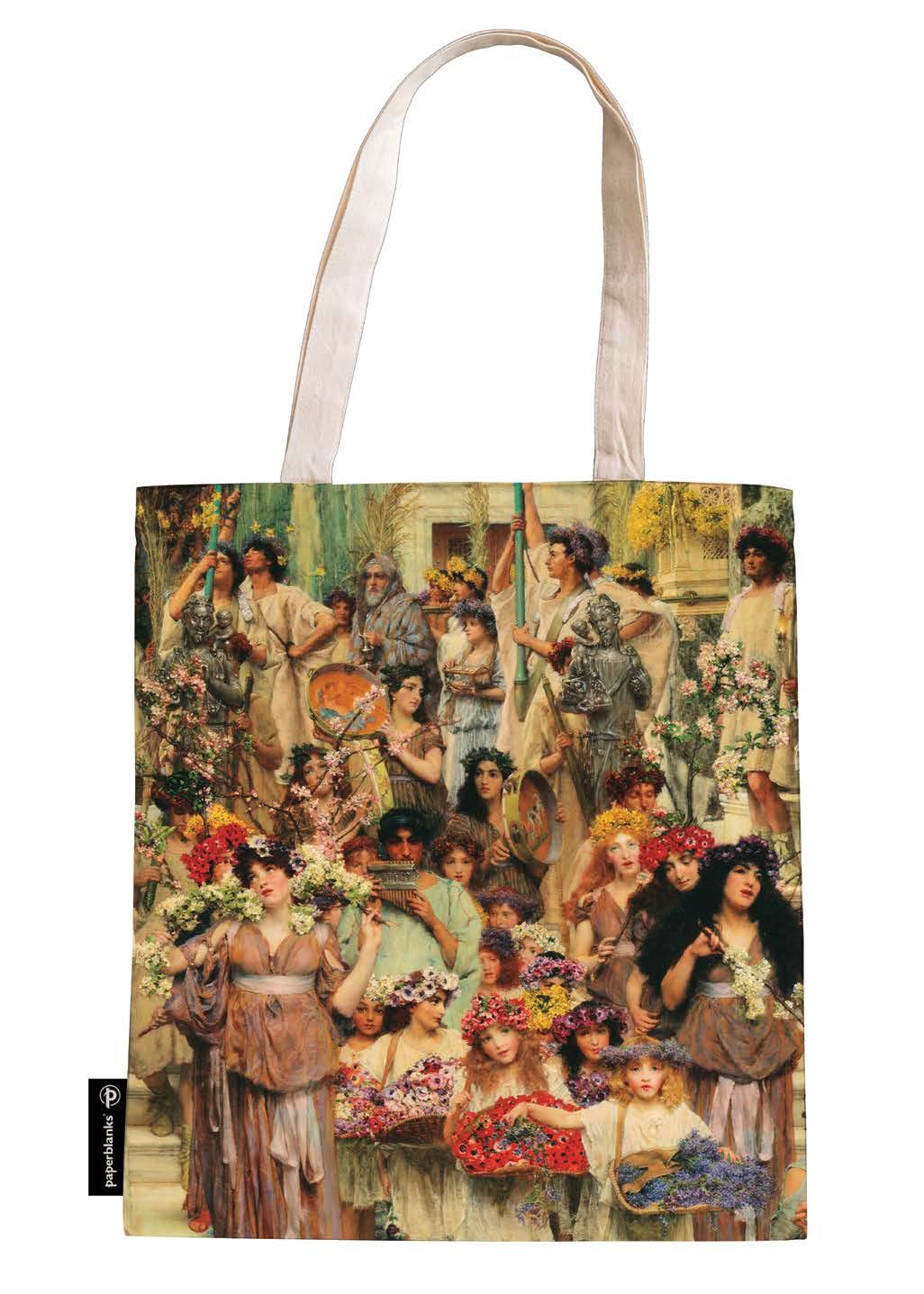
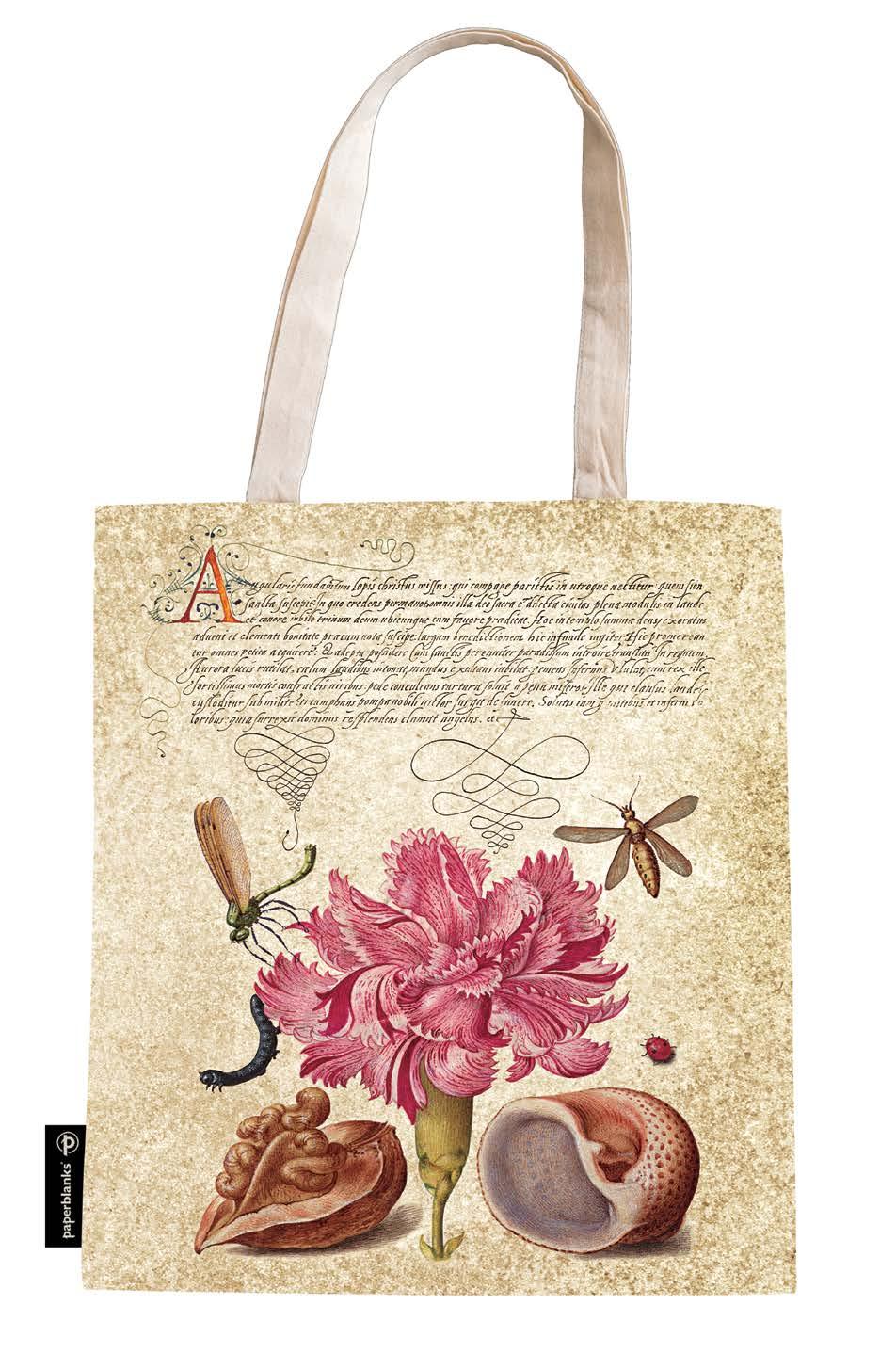

Please note: All original images belong to the licensors and are to be shown internally for sales purposes only. Not to be reproduced, copied or otherwise removed from this sales document.

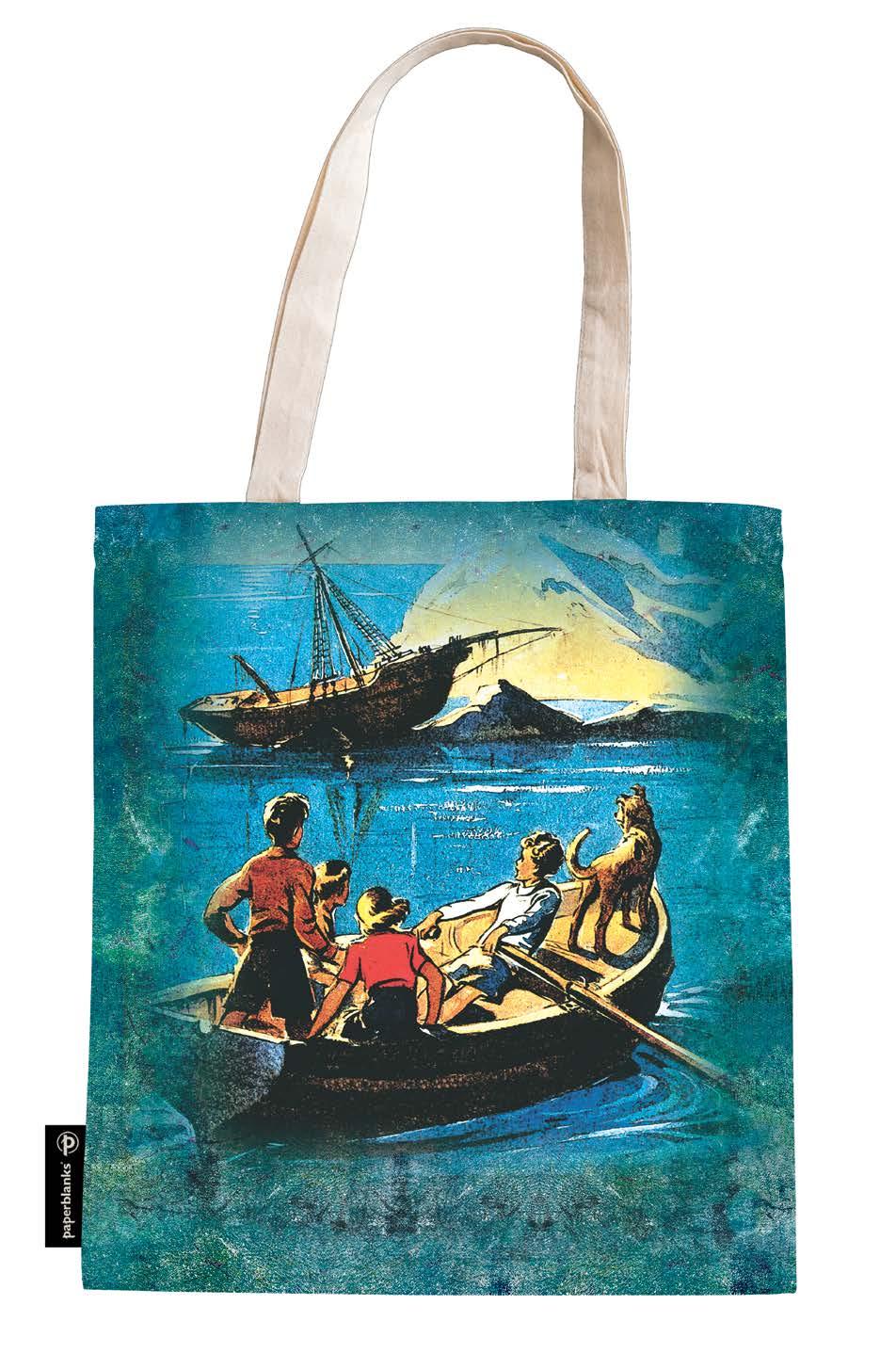
(item not available in Canada, USA and Mexico)
 Gaudi’s Sun
Peace
Pink Carnation
Spring
The Famous Five Cezanne’s Terracotta Pots and Flowers
Gaudi’s Sun
Peace
Pink Carnation
Spring
The Famous Five Cezanne’s Terracotta Pots and Flowers
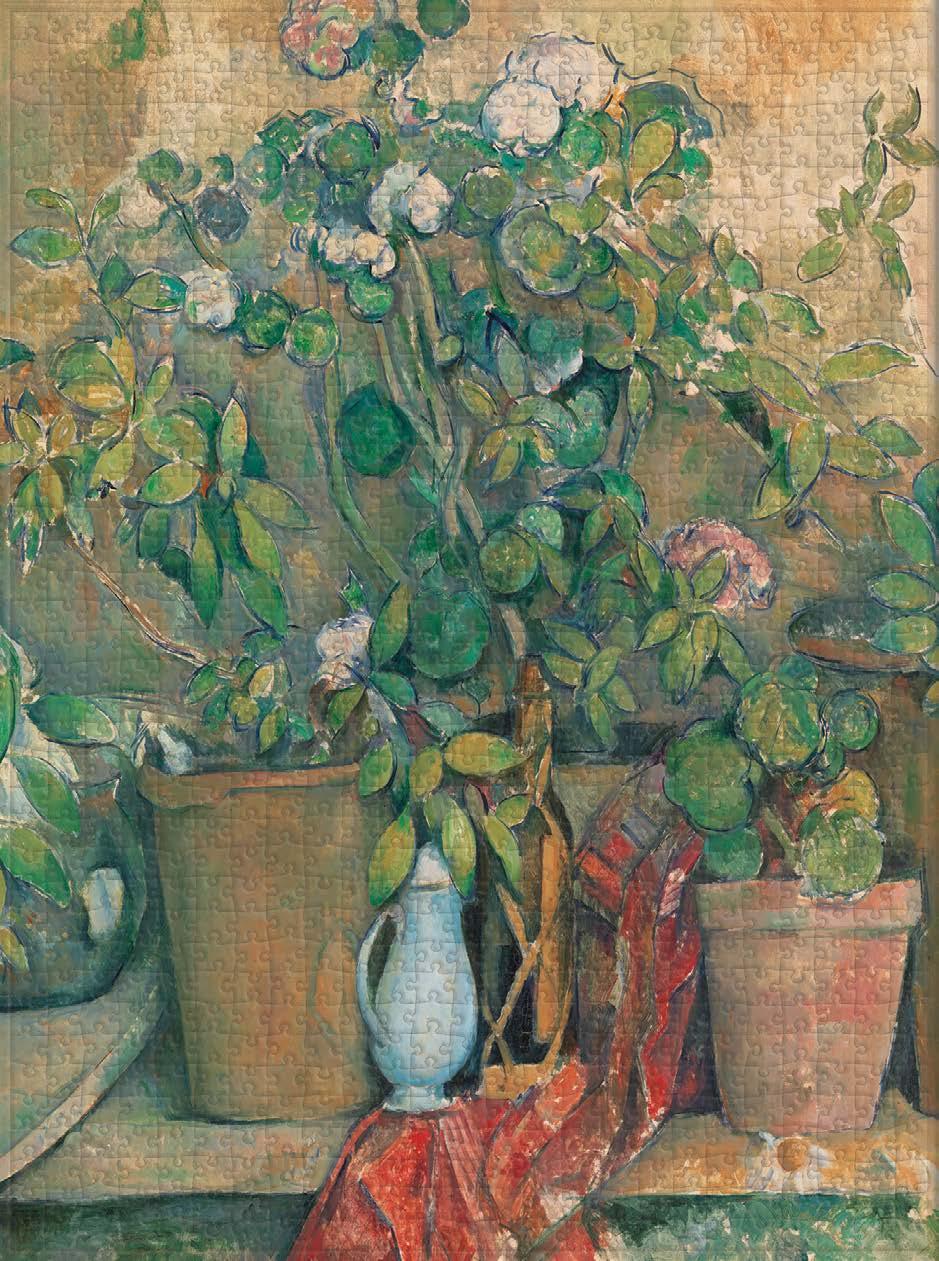
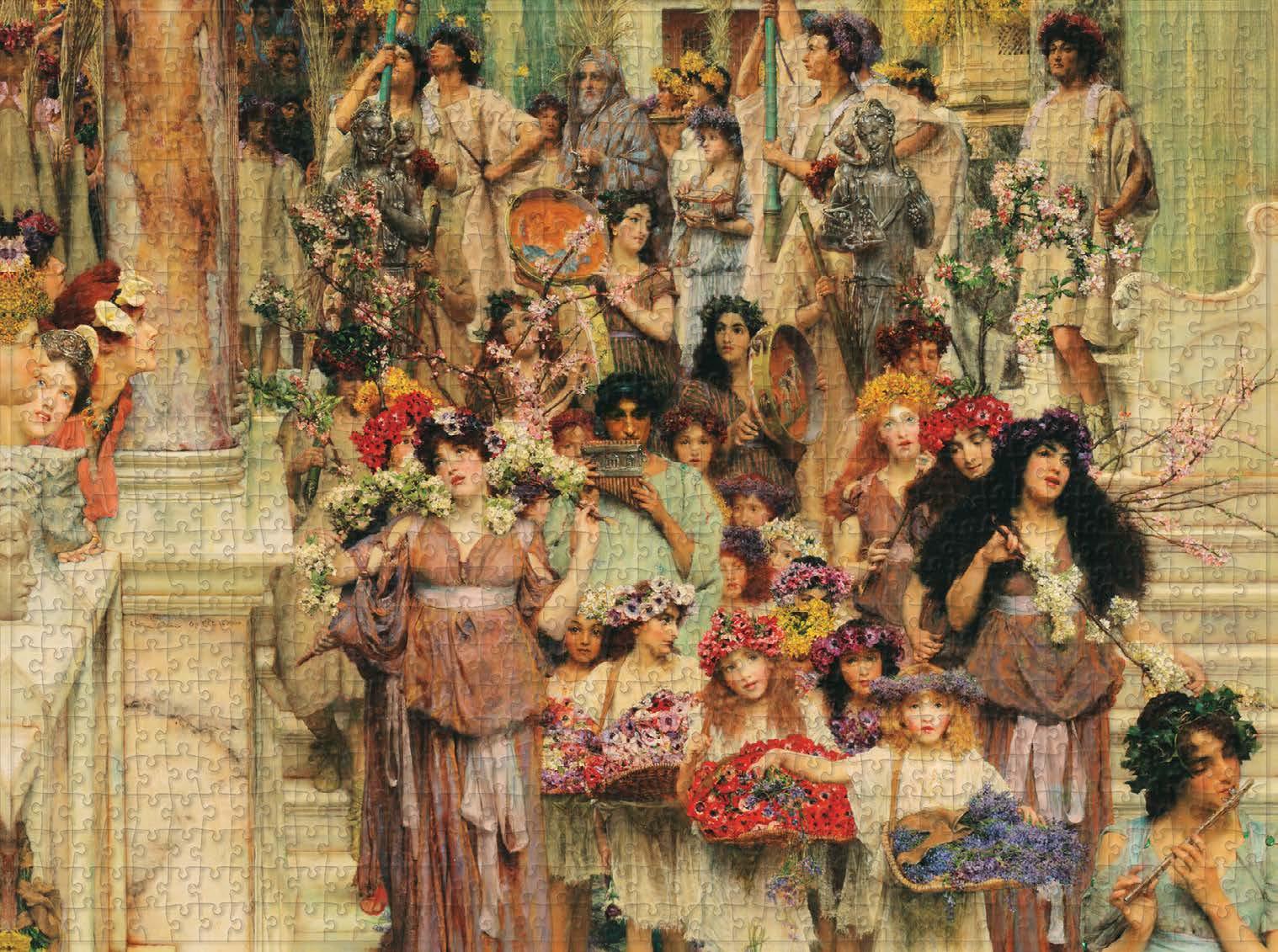
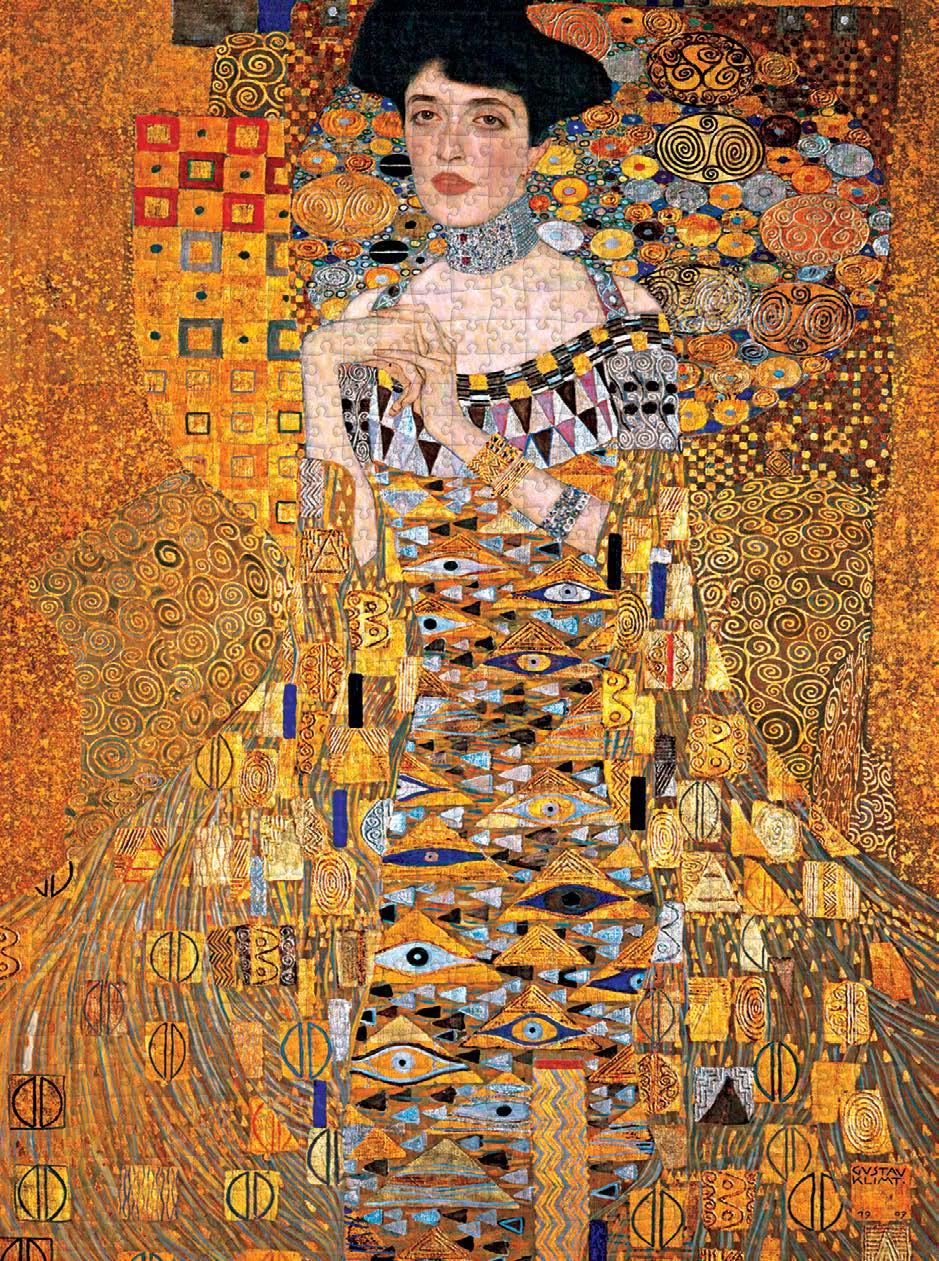
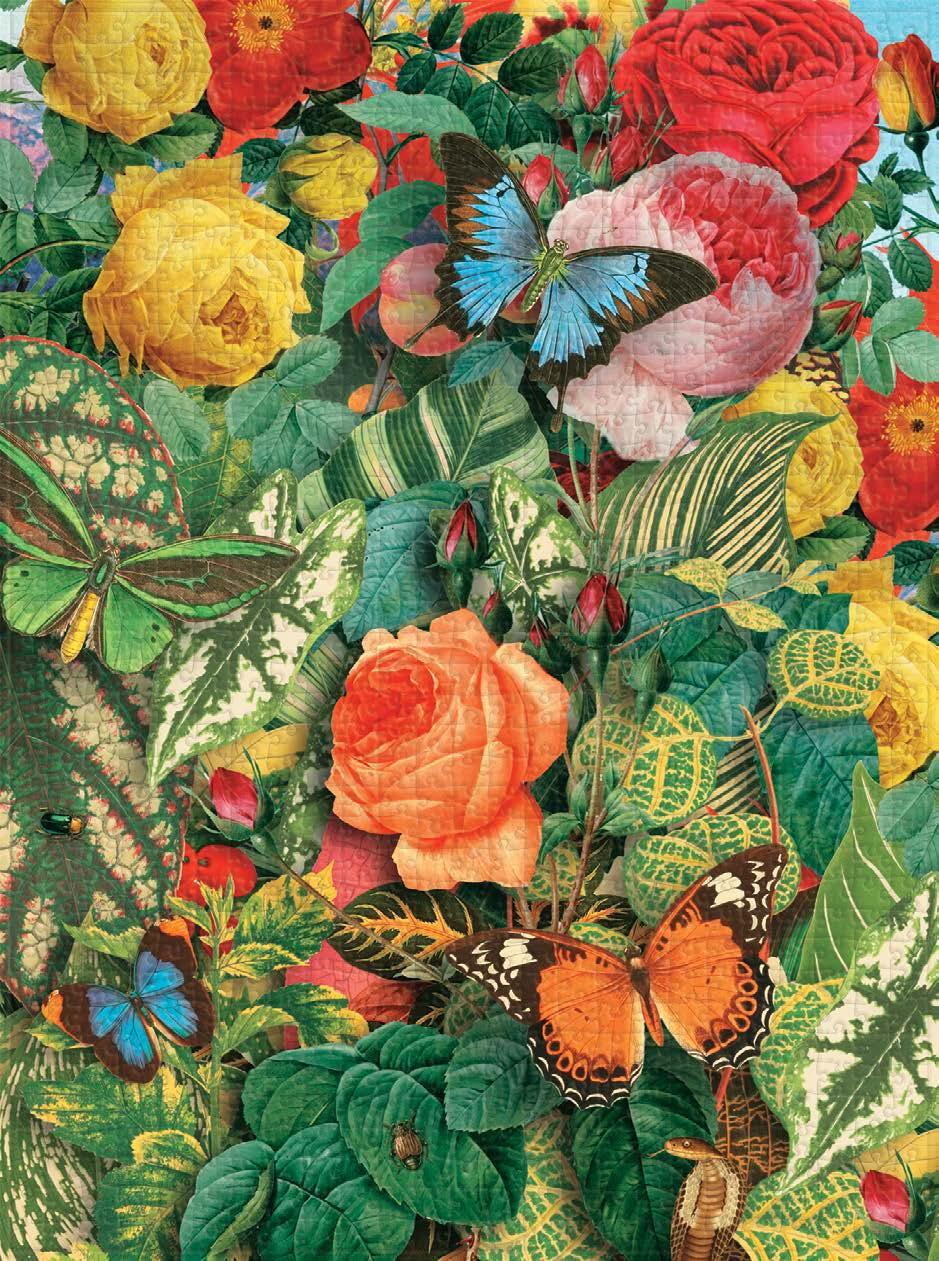

Please note: All original images belong to the licensors and are to be shown internally for sales purposes only. Not to be reproduced, copied or otherwise removed from this sales document.
Cezanne’s Terracotta Pots and Flowers Klimt, Portrait of Adele Butterfly Garden Peace Spring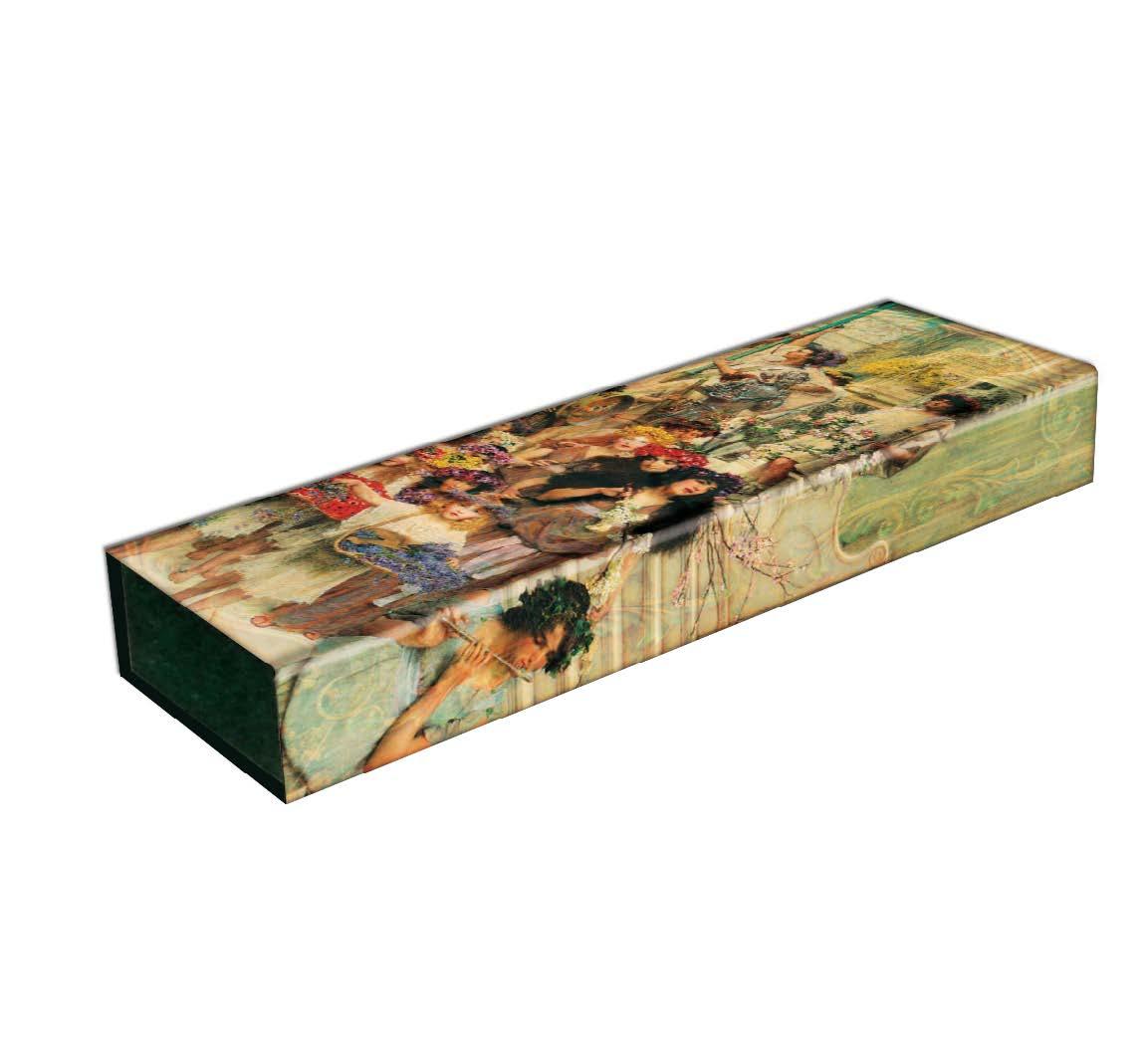
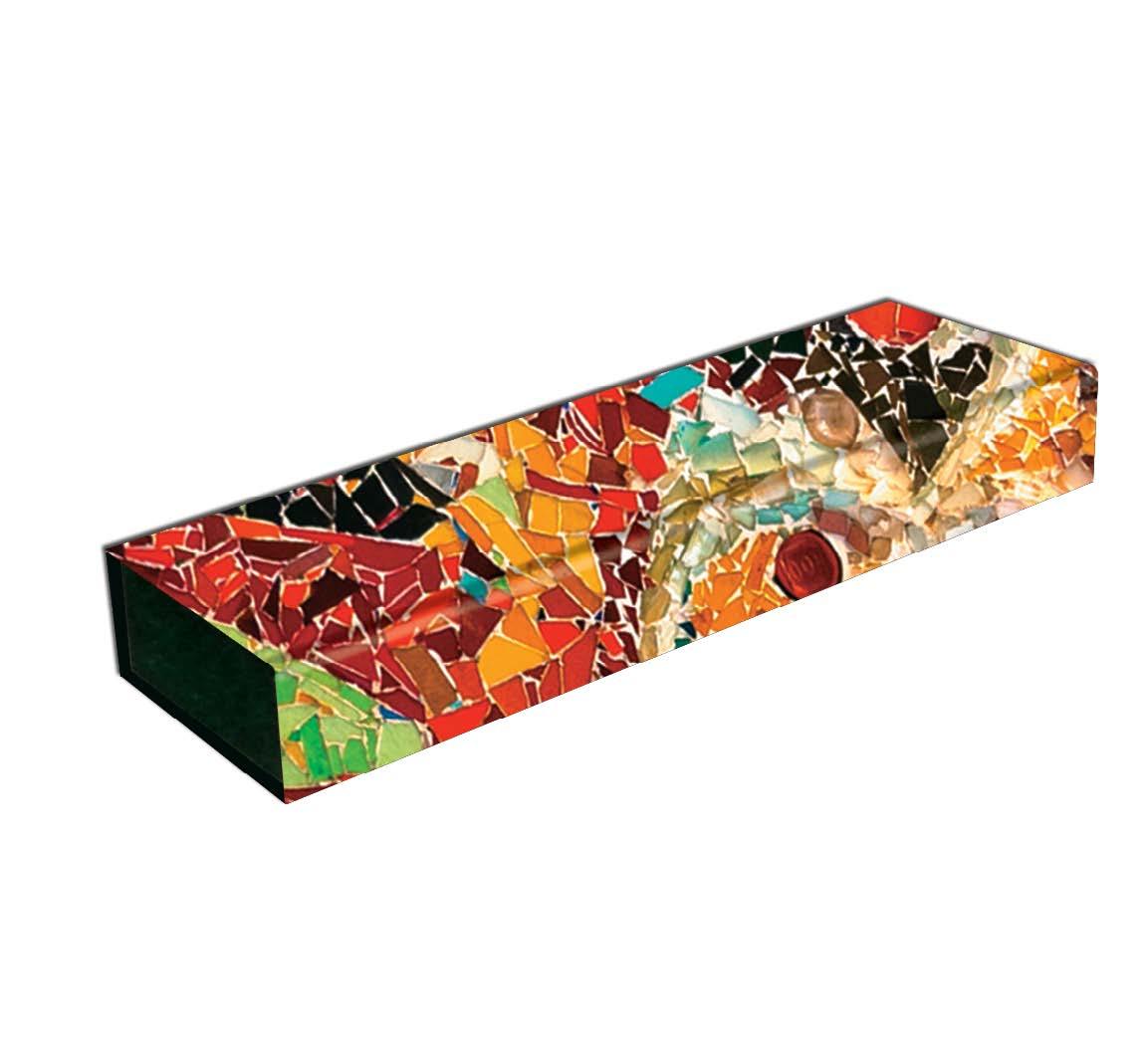

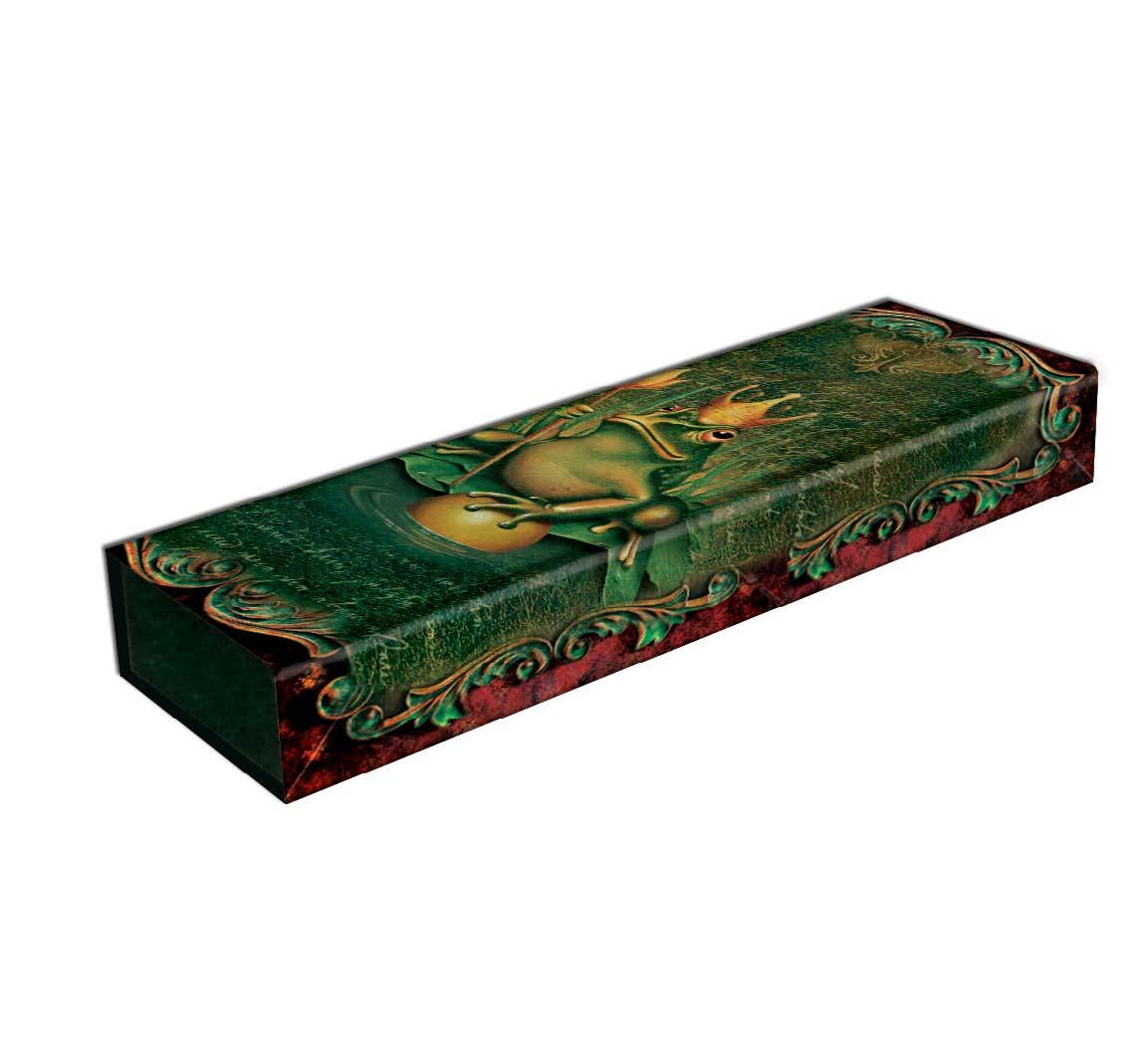
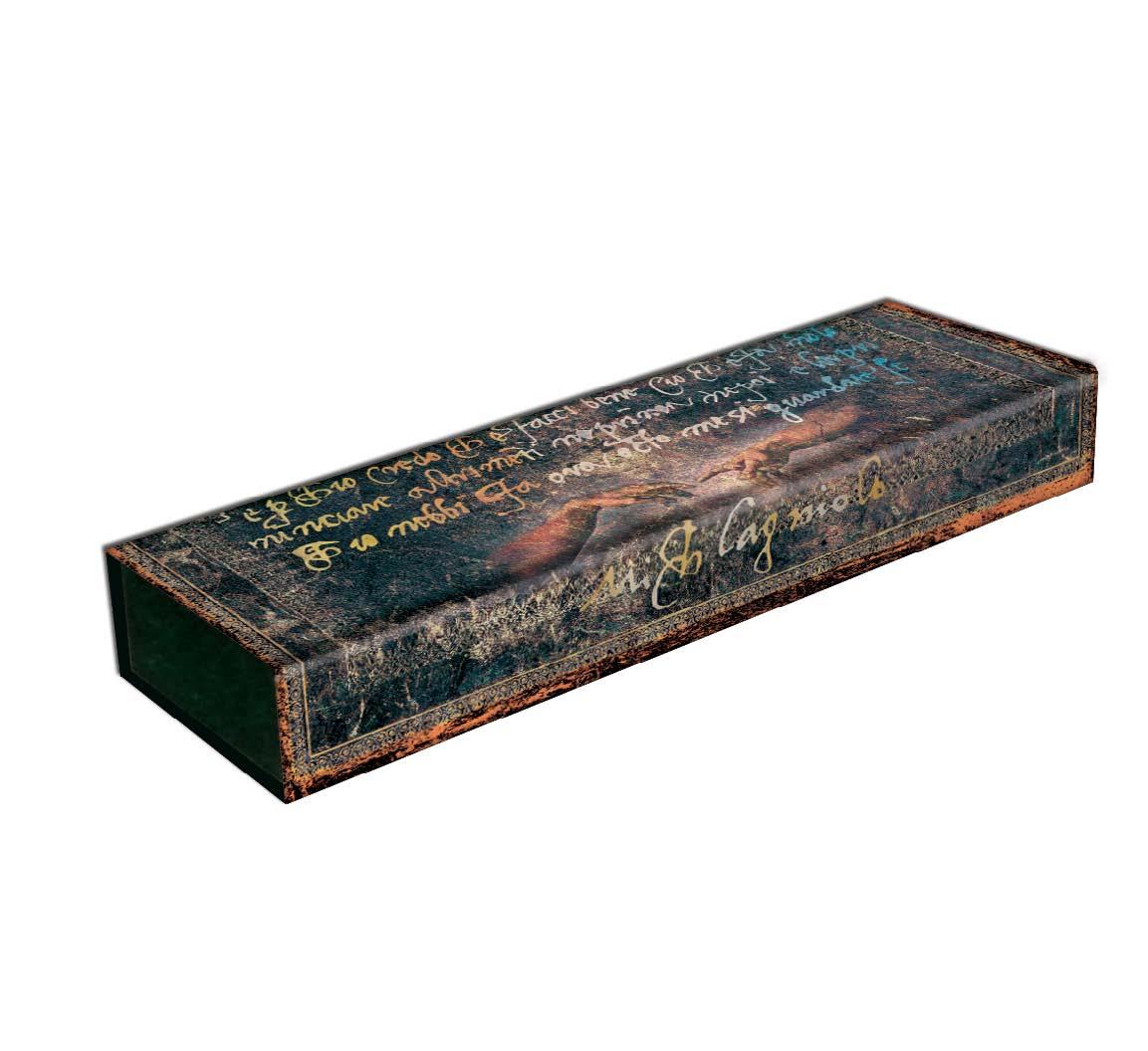
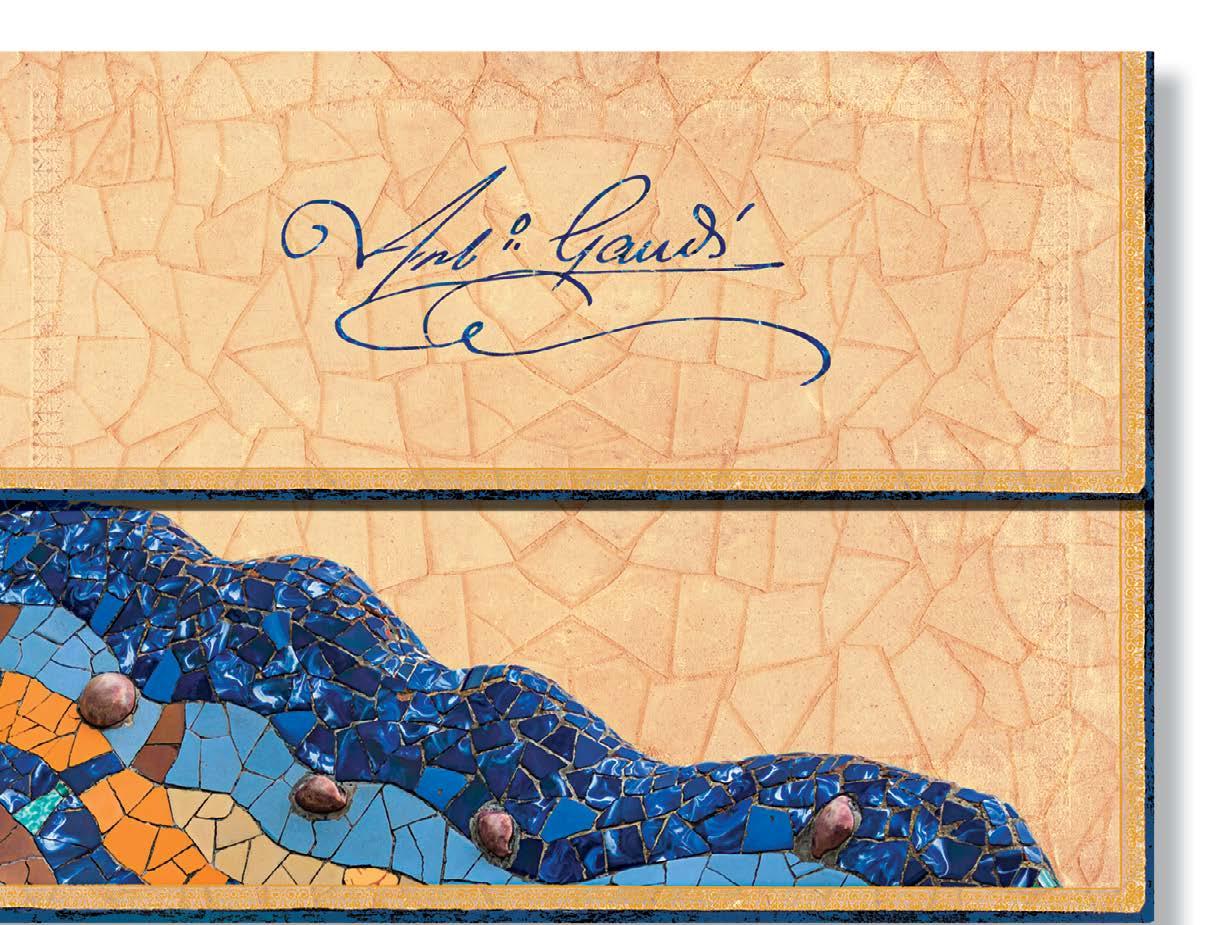
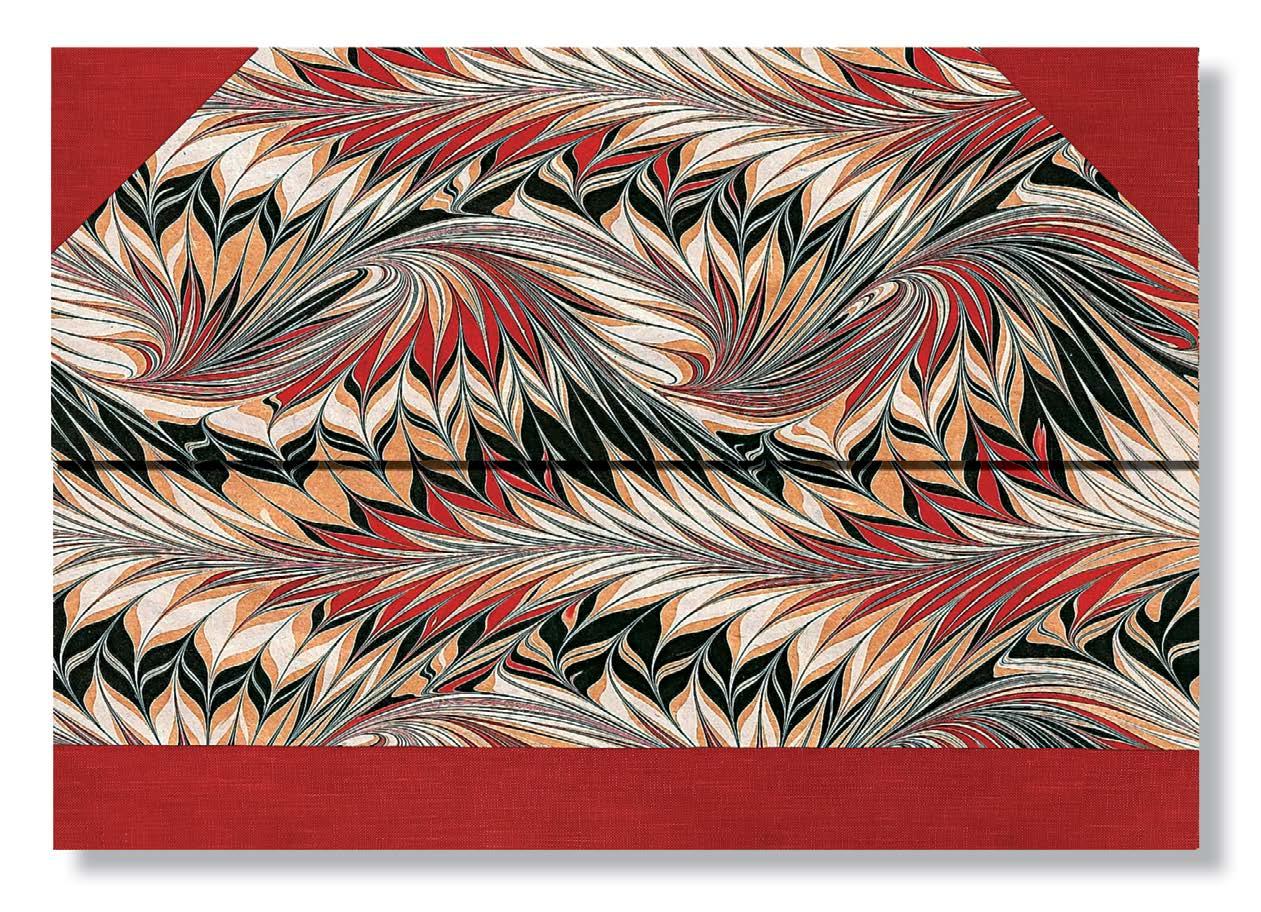
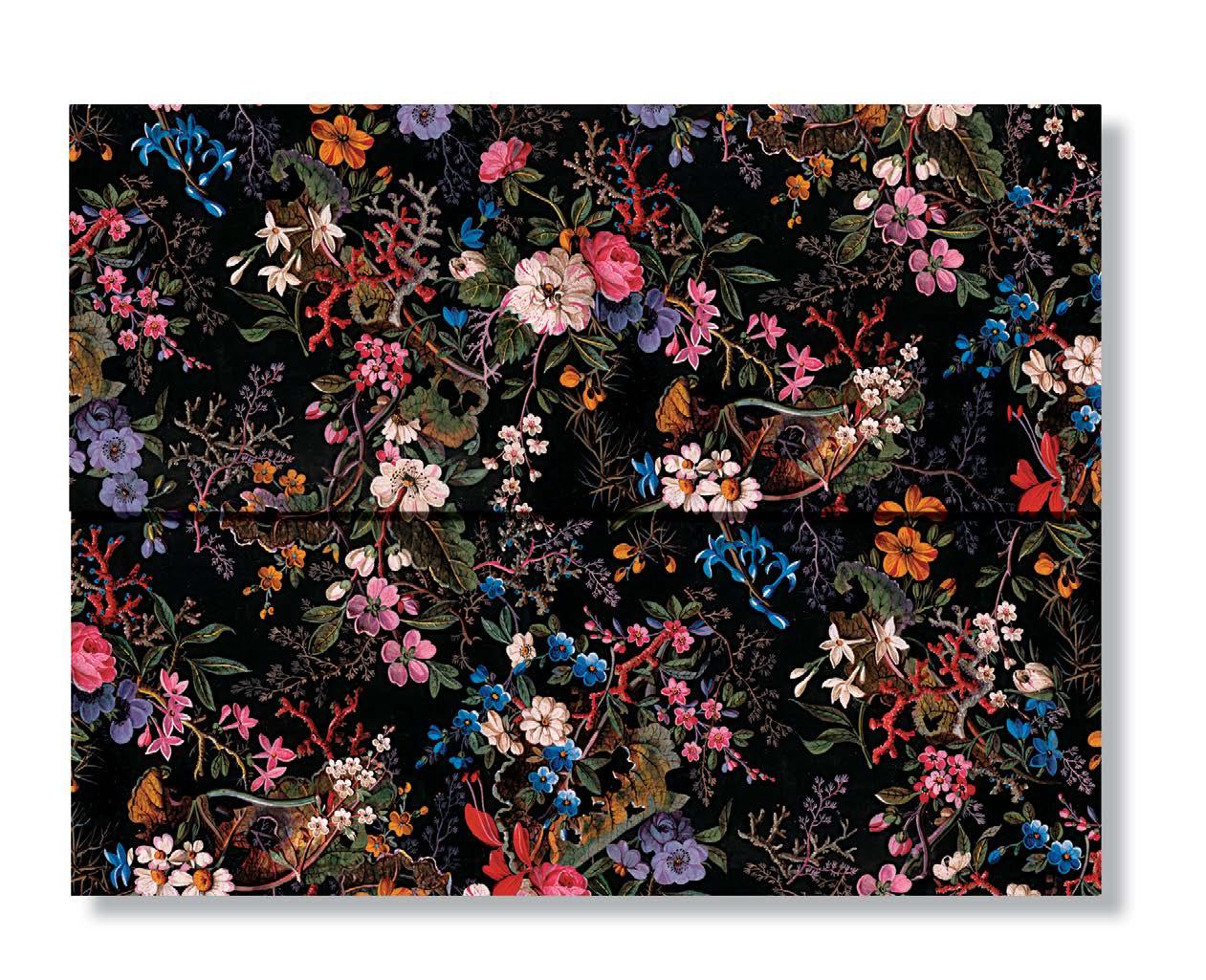
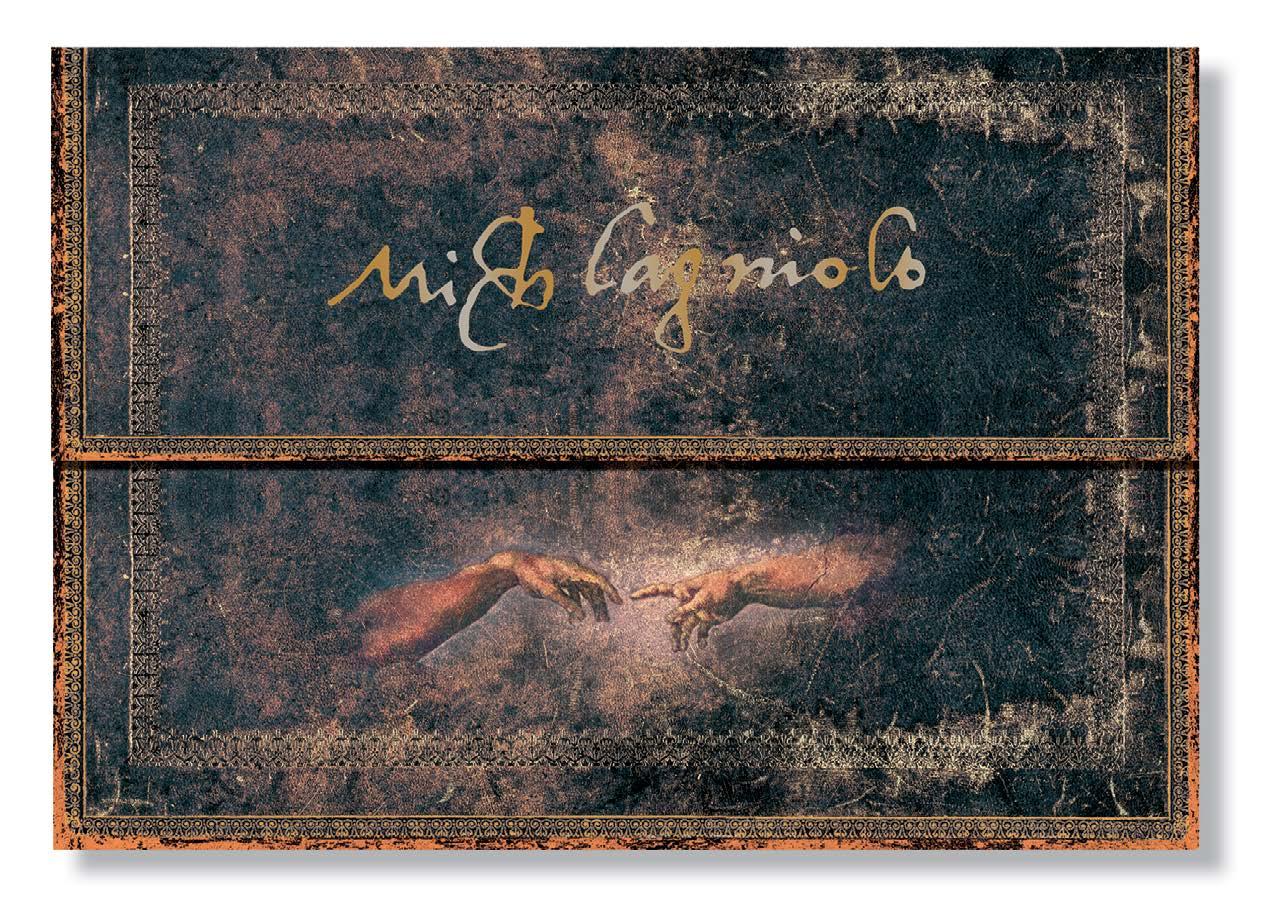
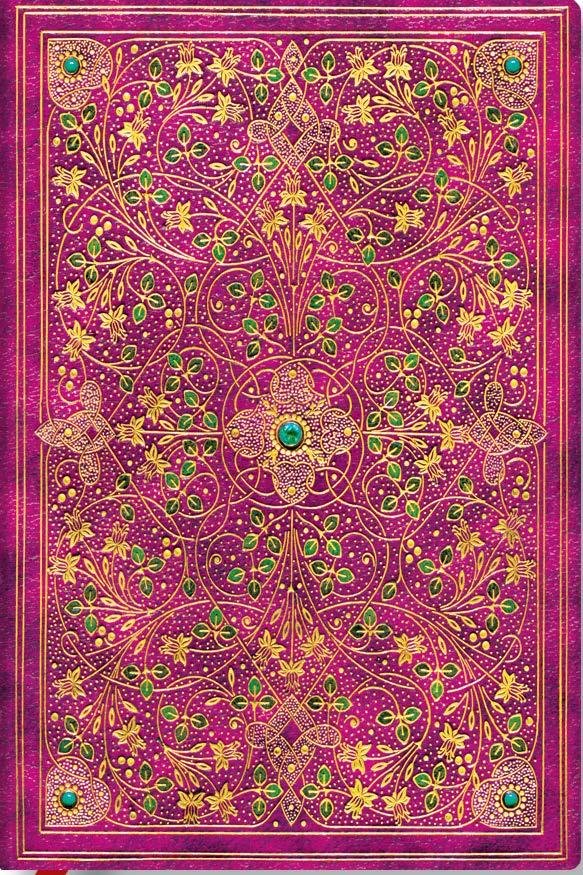
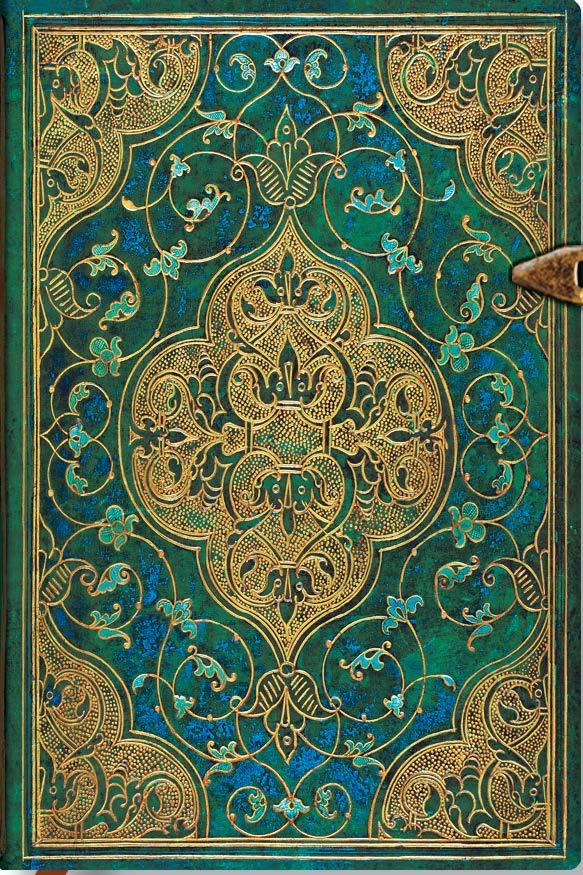
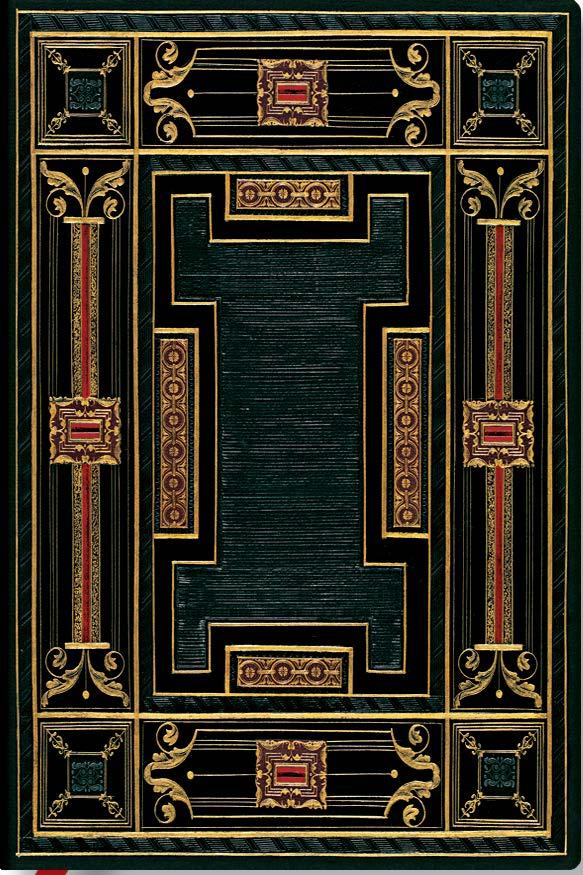
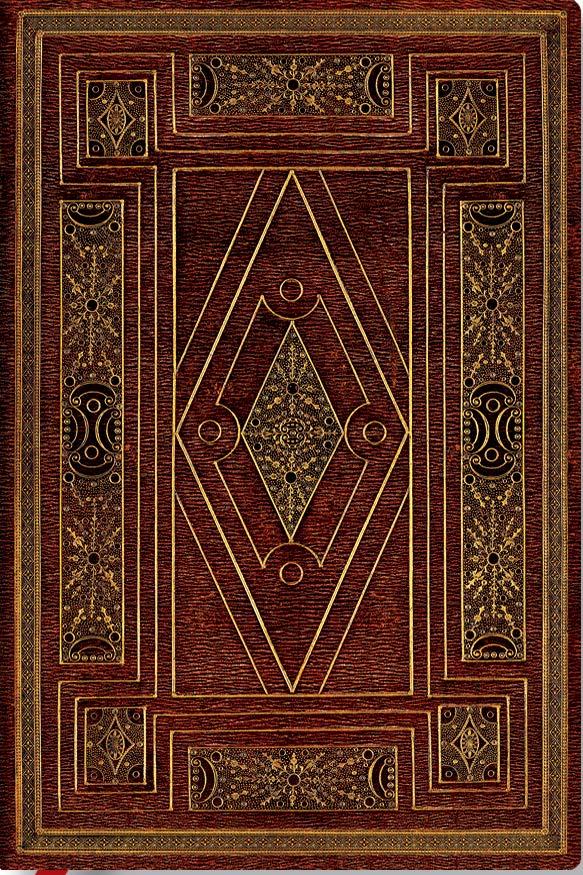
Please note: All original images belong to the licensors and are to be shown internally for sales purposes only. Not to be reproduced, copied or otherwise removed from this sales document.
Diamond Jubilee Turquoise Chronicles Onyx First Folio
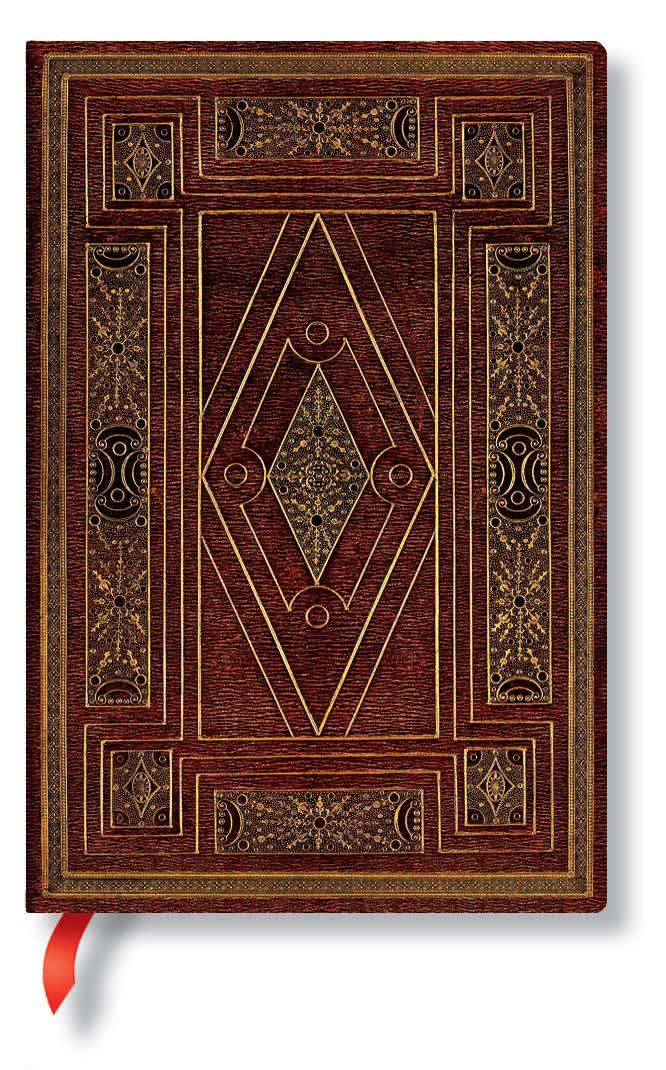
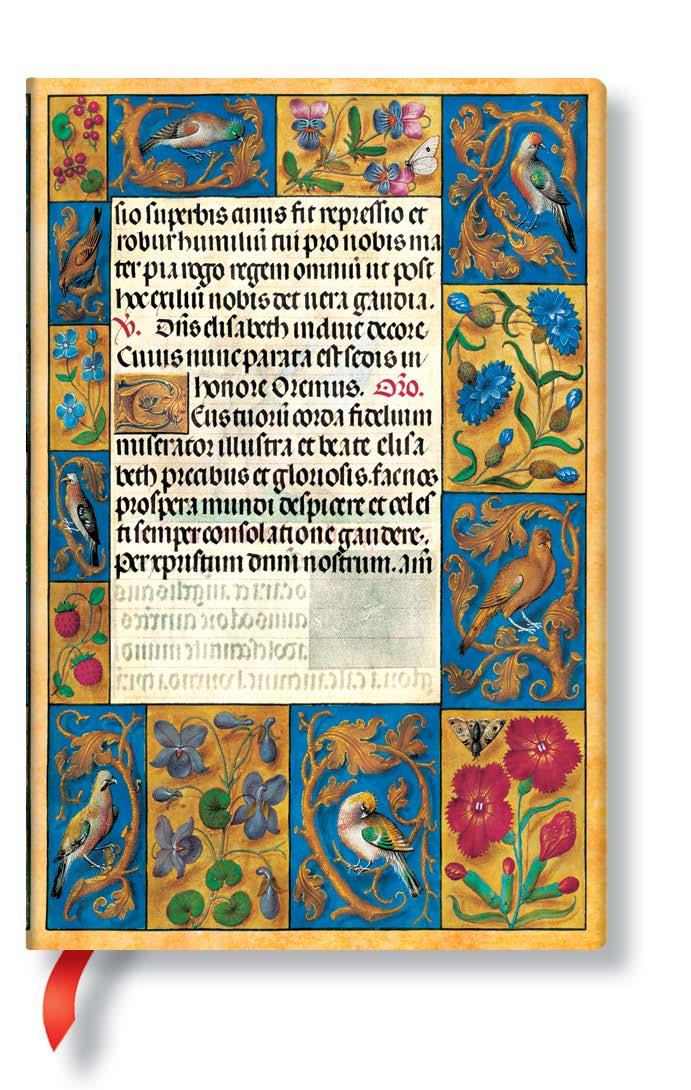
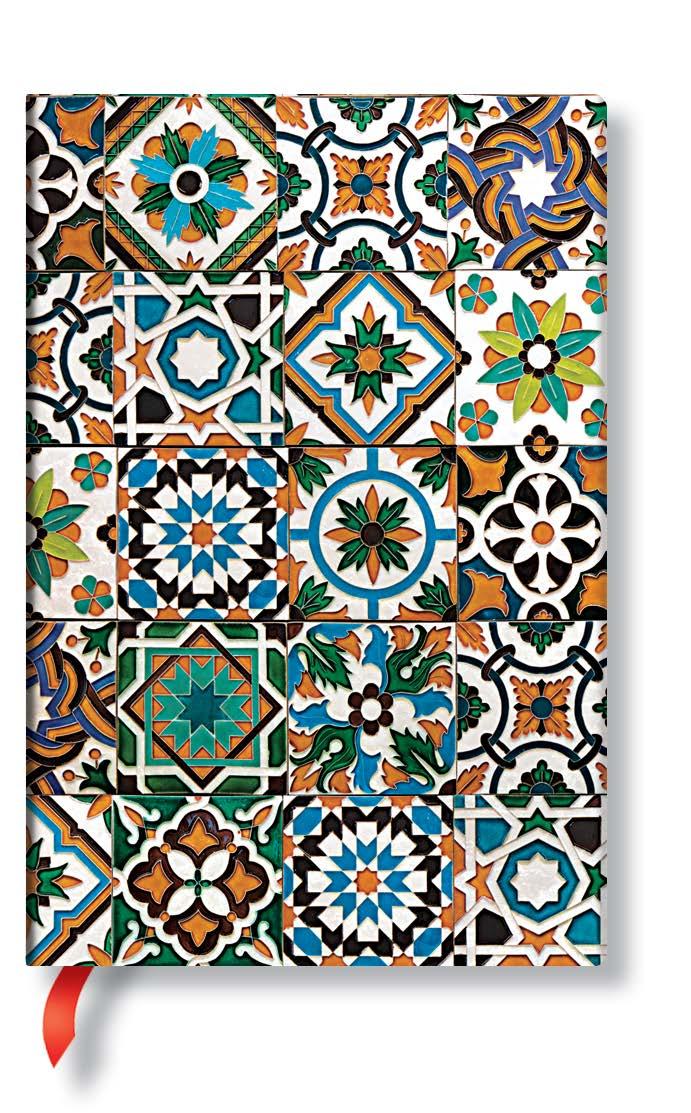
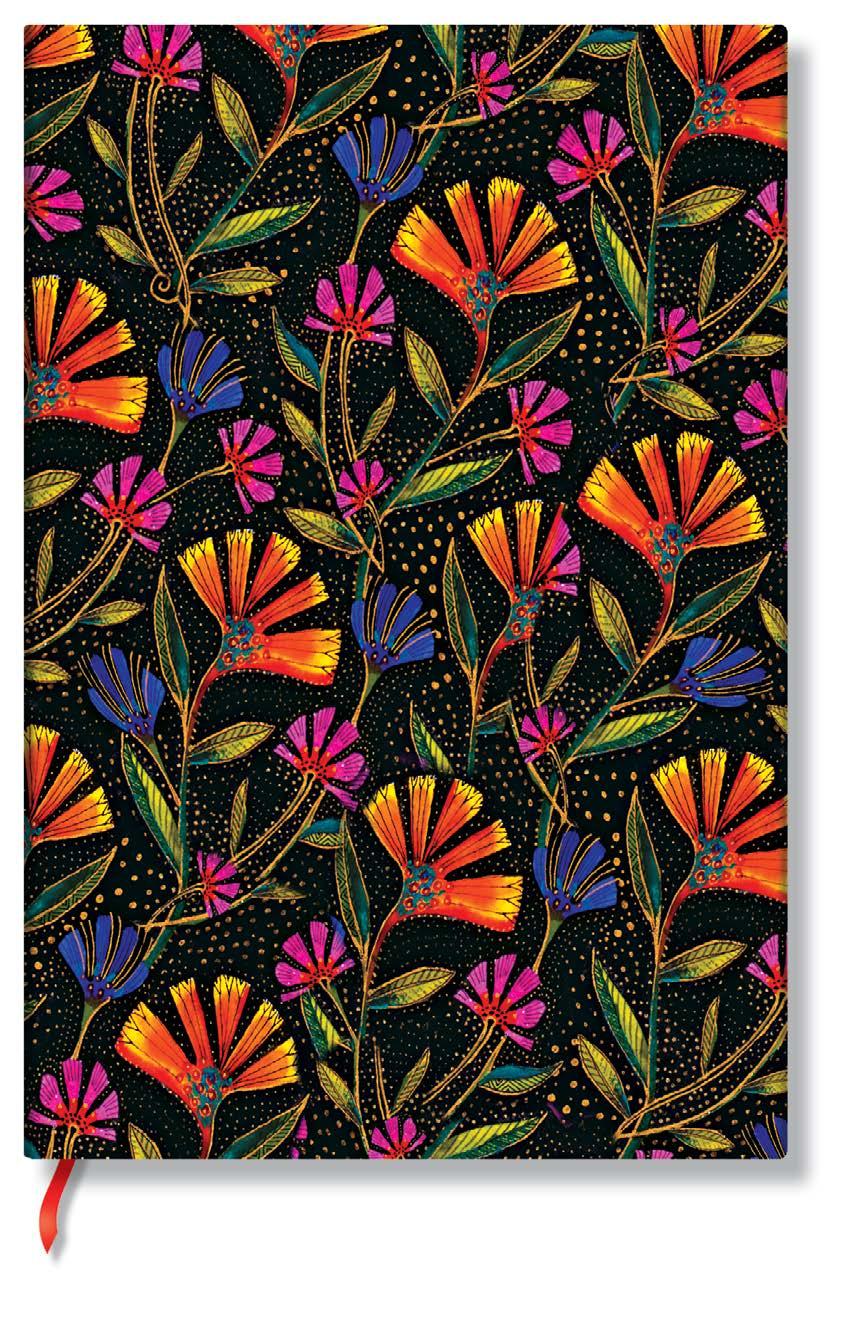
Please note: All original images belong to the licensors and are to be shown internally for sales purposes only. Not to be reproduced, copied or otherwise removed from this sales document.
The J. Paul Getty Museum Collection
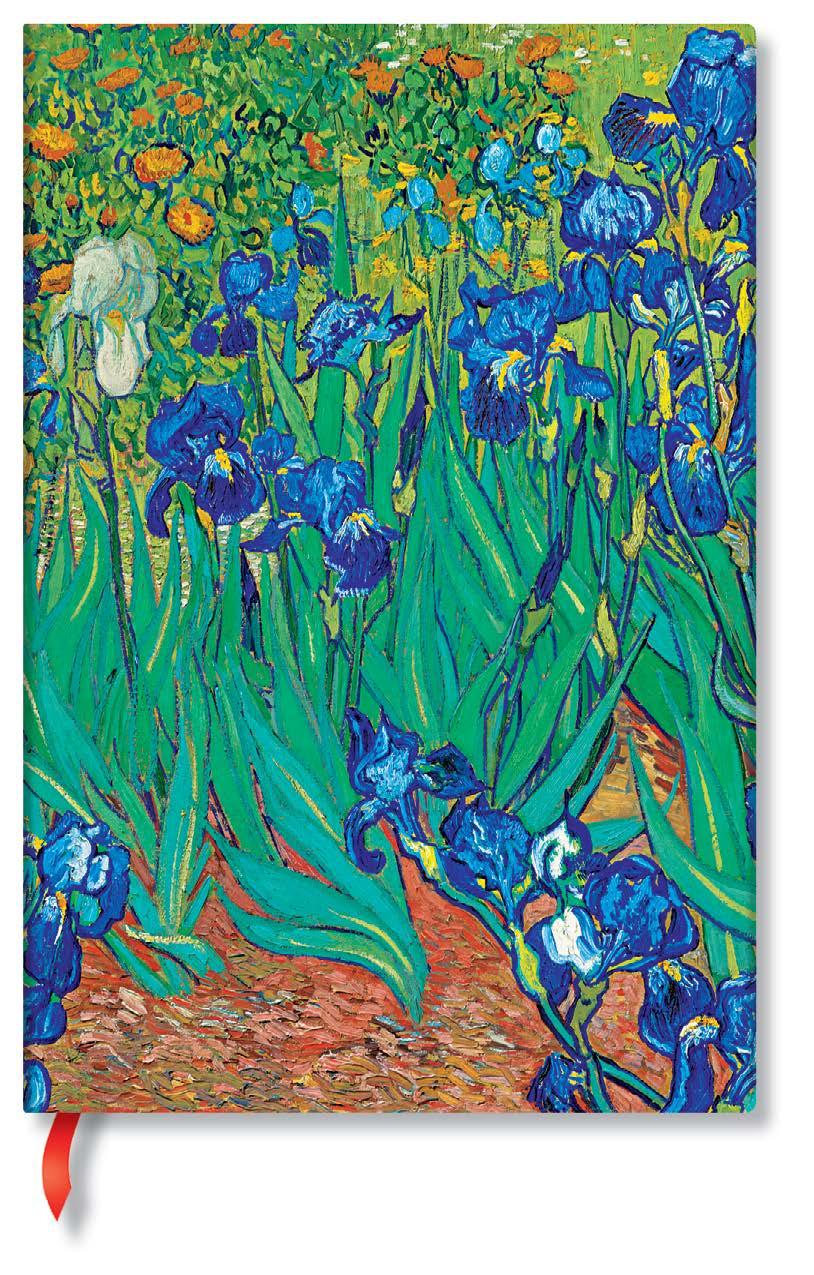
Original Artwork: Vincent van Gogh’s Irises painting Era: 1889
Region: Saint-Rémy-de-Provence, France
Current Location: The Getty Museum in Los Angeles, California
About This Design:
O Dutch artist Vincent van Gogh (1853–1890) was one of the greatest of the Post-Impressionist painters.
O Though much of his work, like this Irises study, is filled with brightness and light, Van Gogh’s own life was filled with personal turmoil.
O A severe mental health crisis, in which he now-famously cut off his own ear, prompted Van Gogh to admit himself to the SaintPaul Asylum at Saint-Rémy in the south of France.
Vault of the Milan Cathedral Ultra Spinola Hours Mini Porto Mini Wild Flowers Midi First Folio Midi